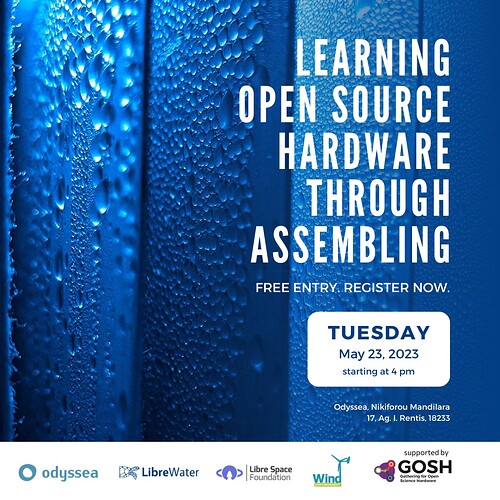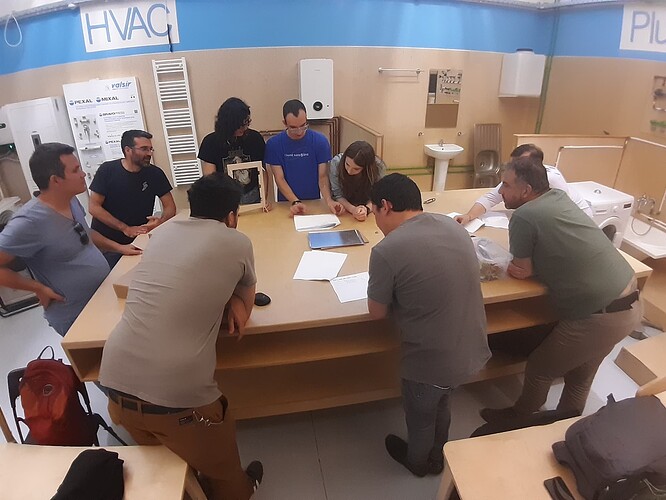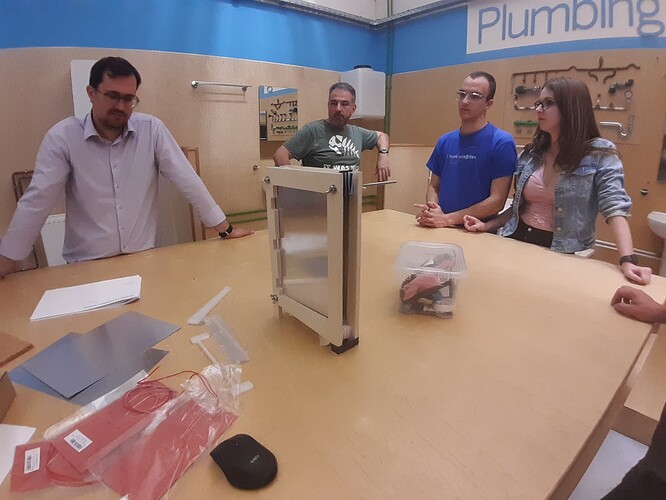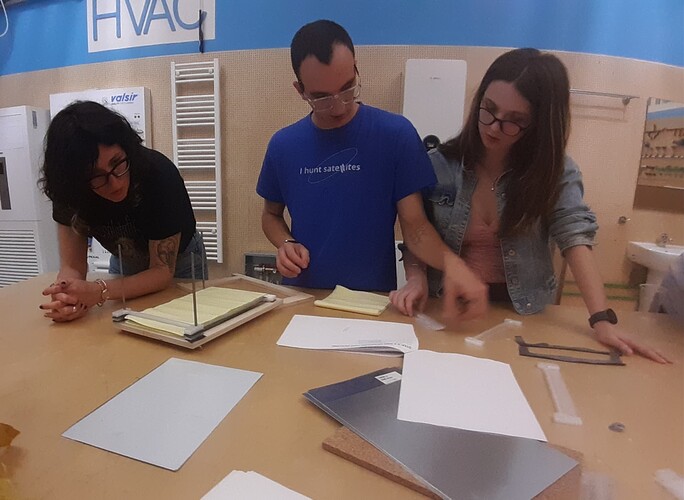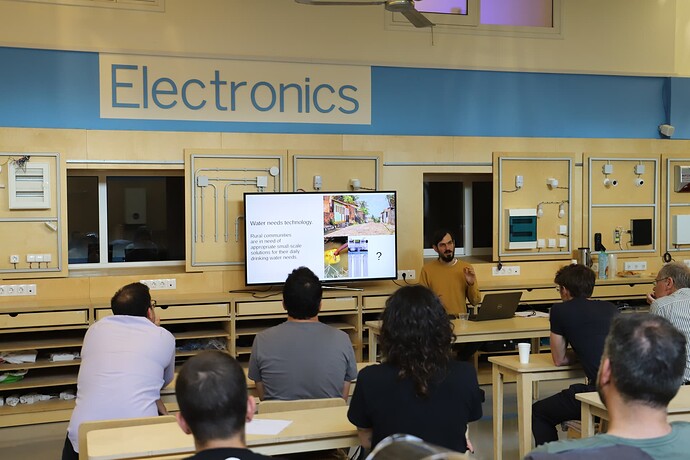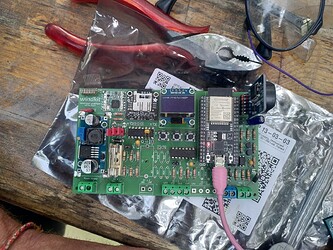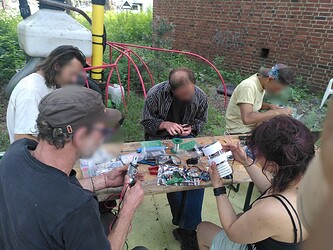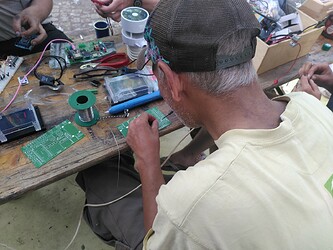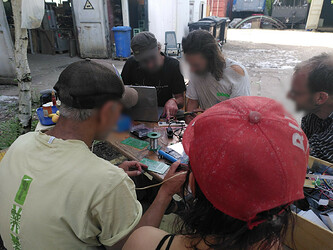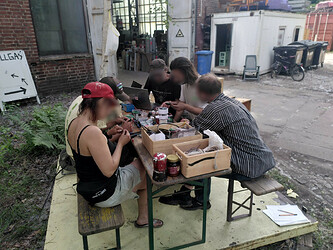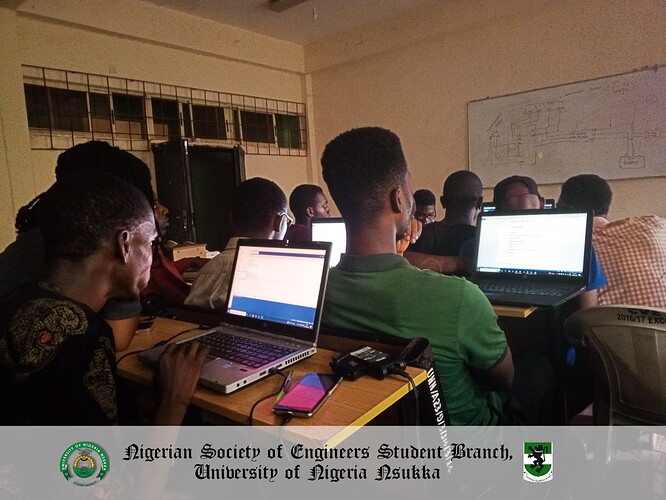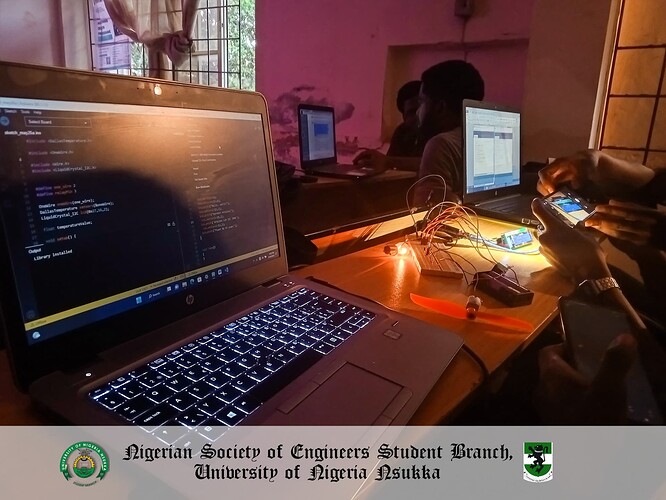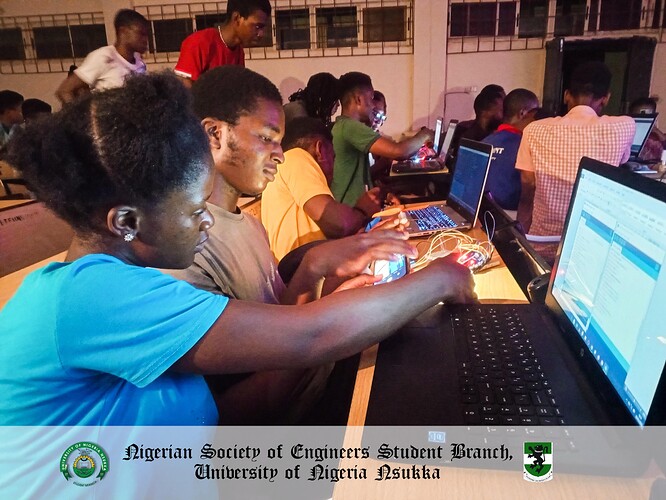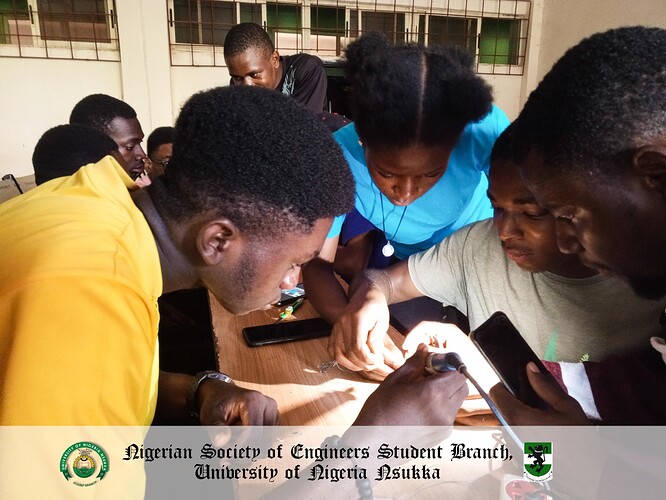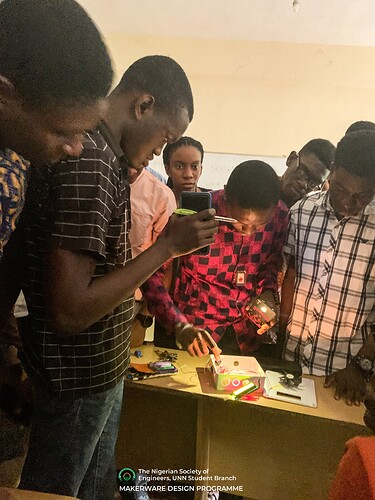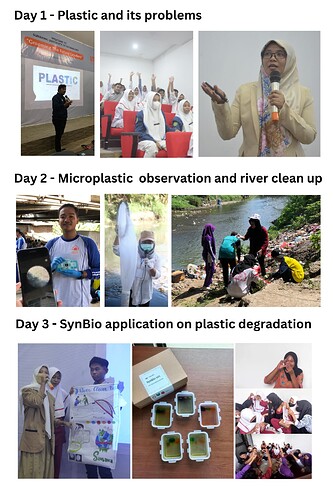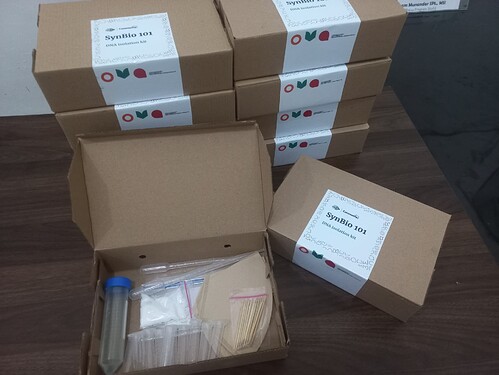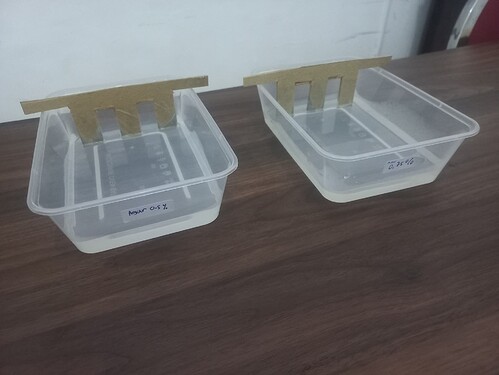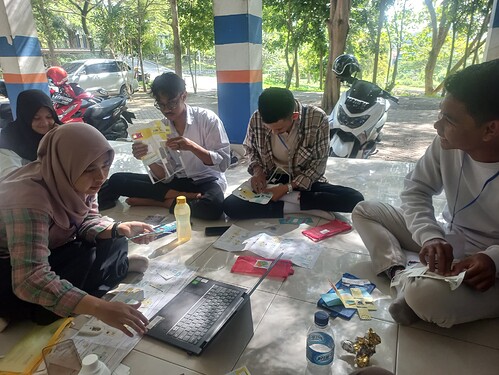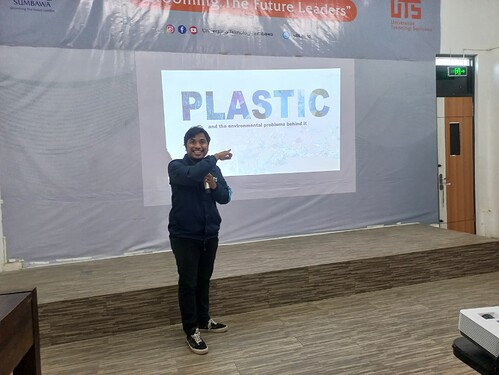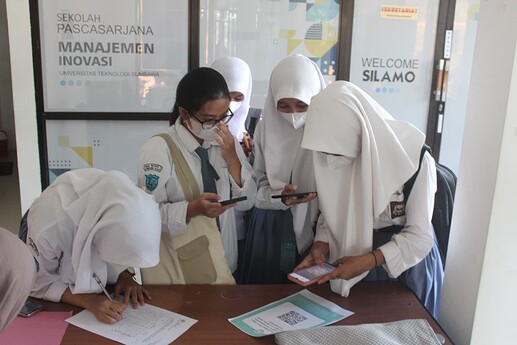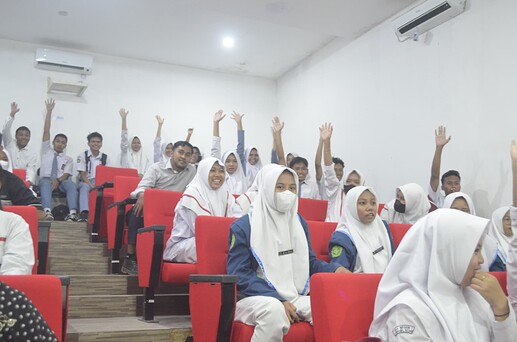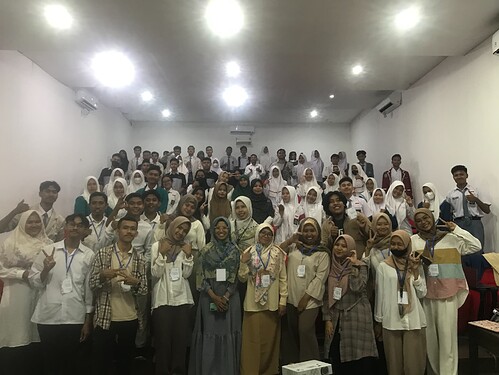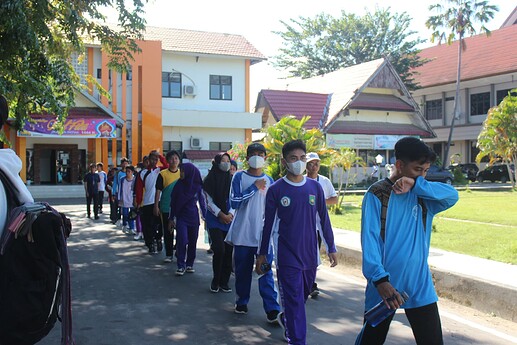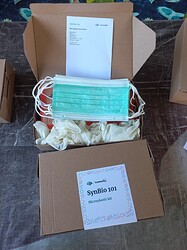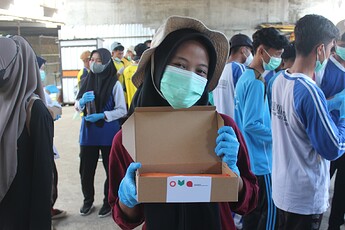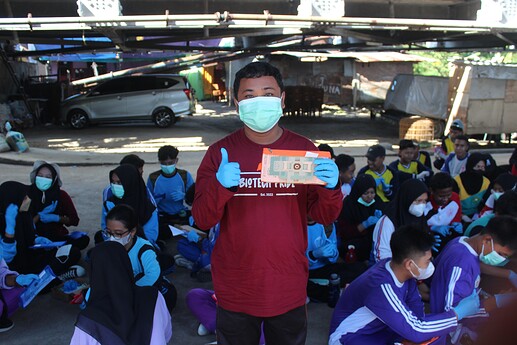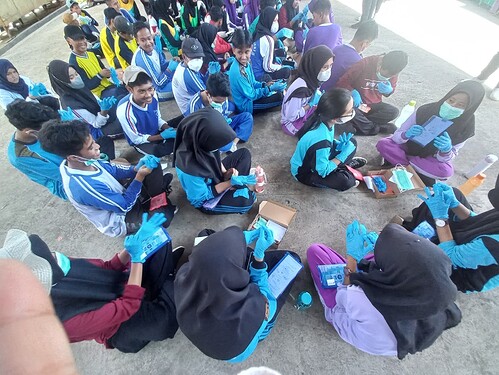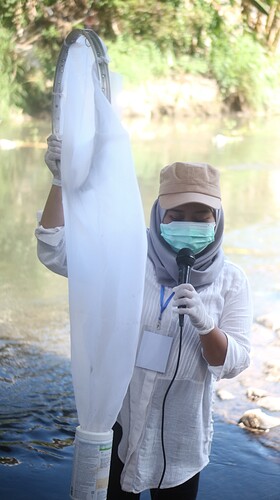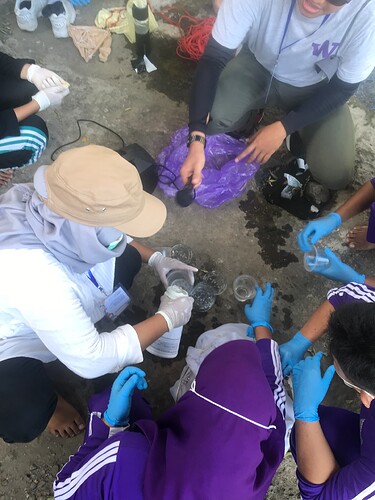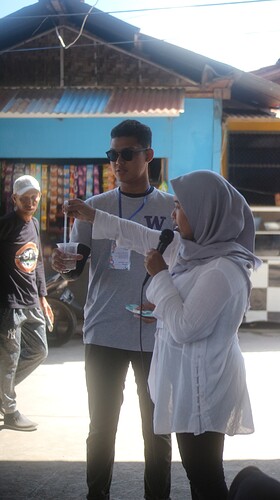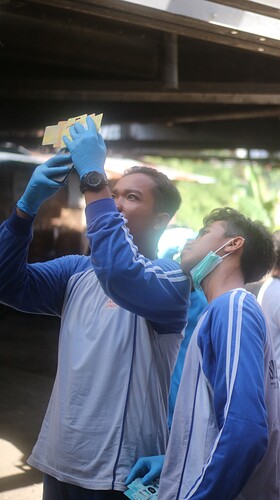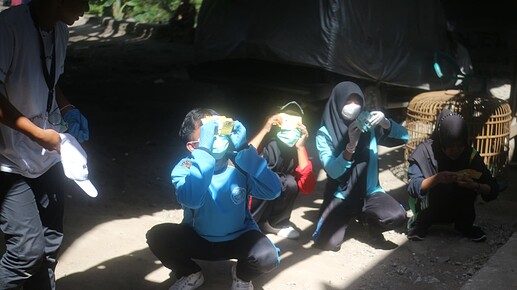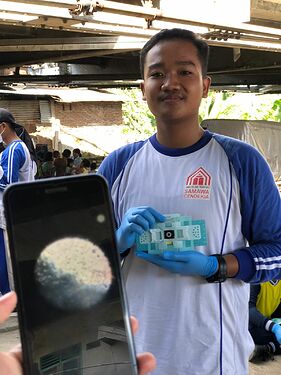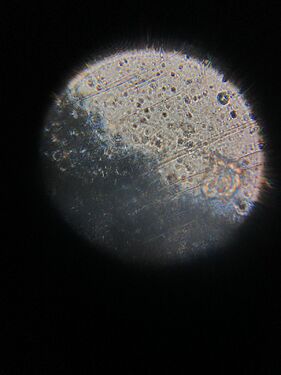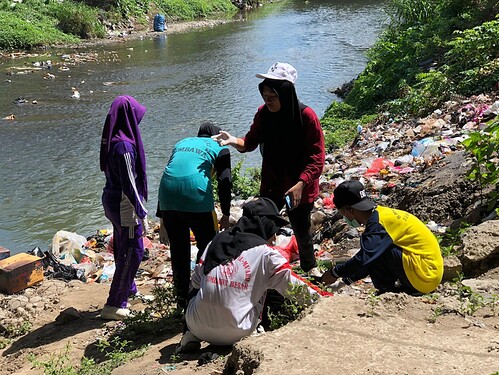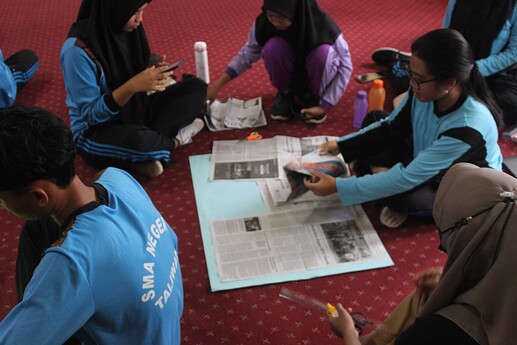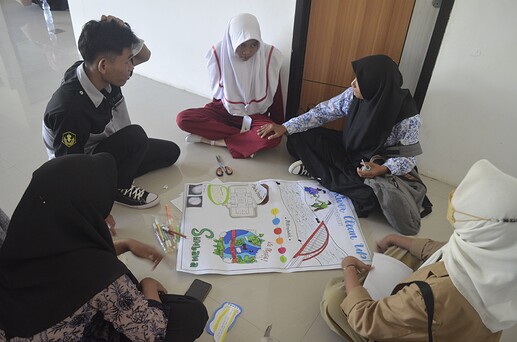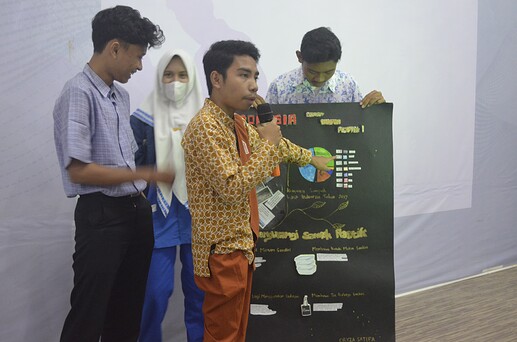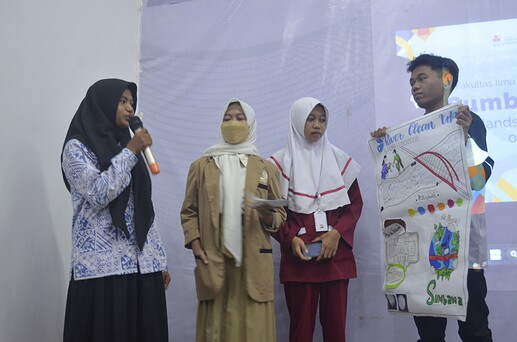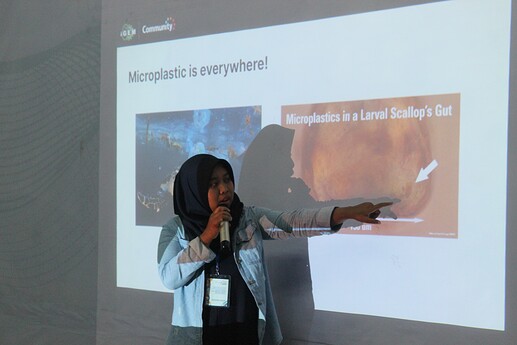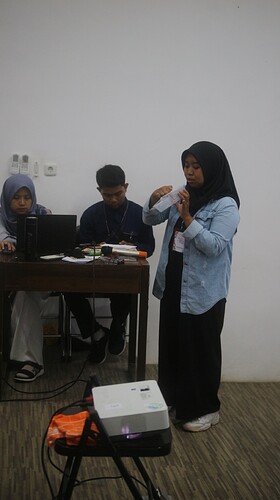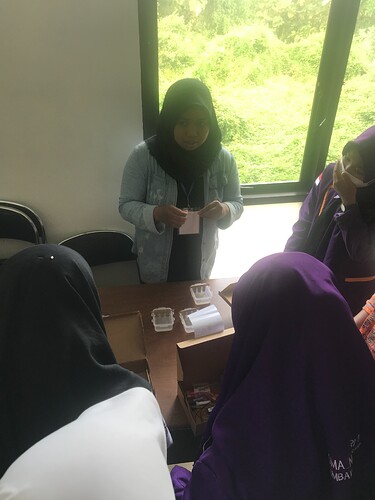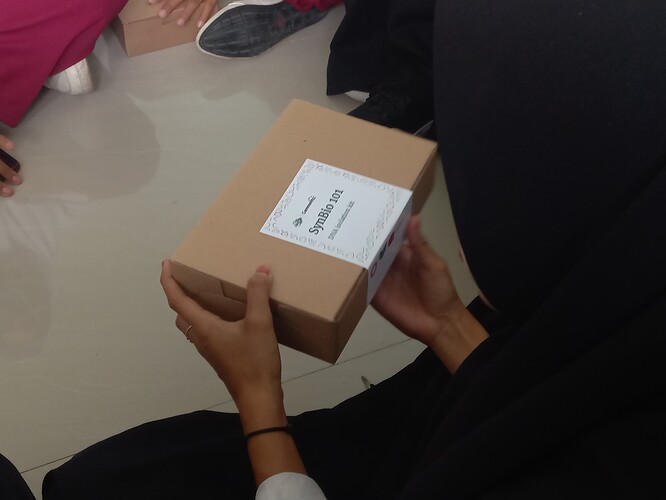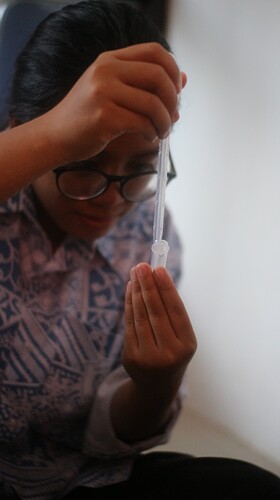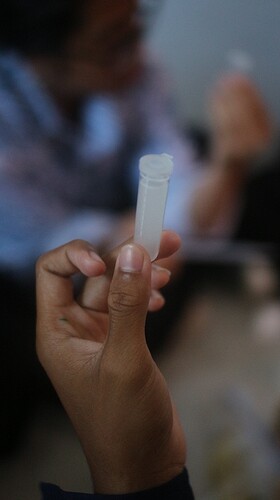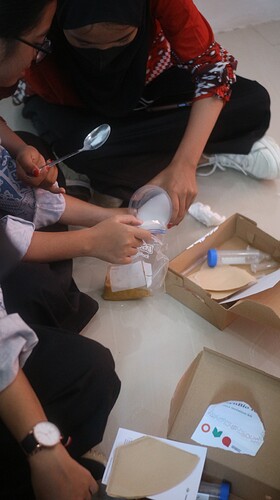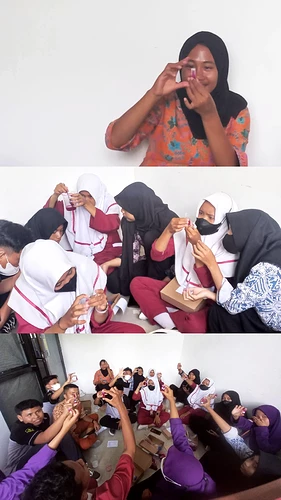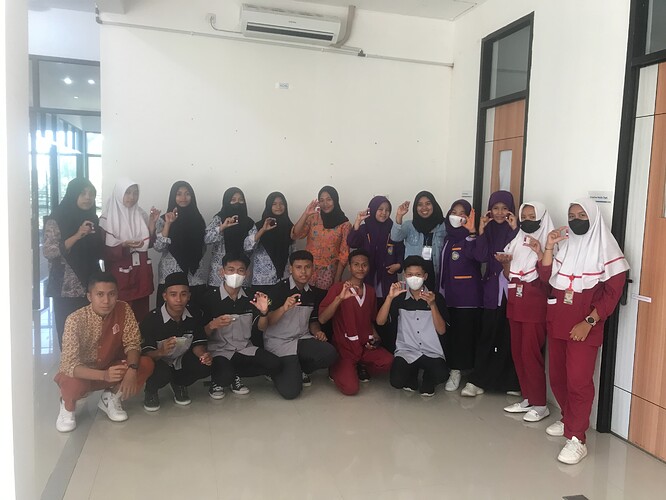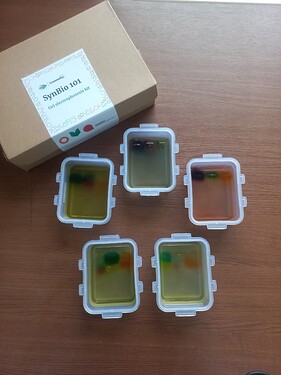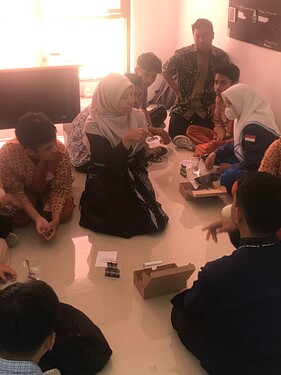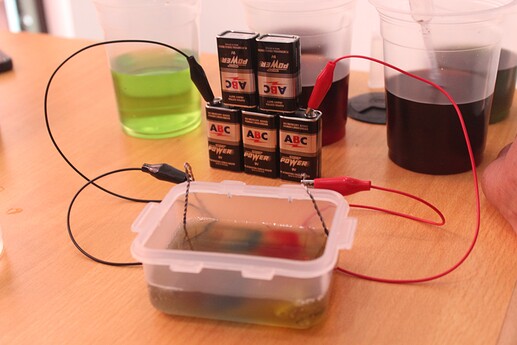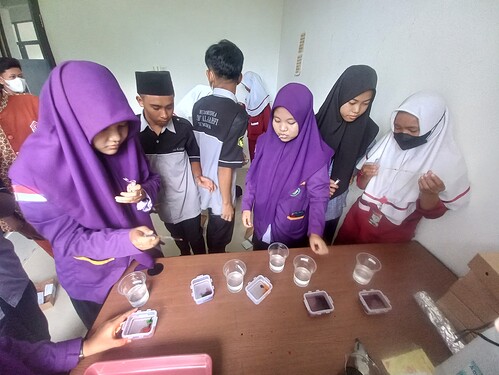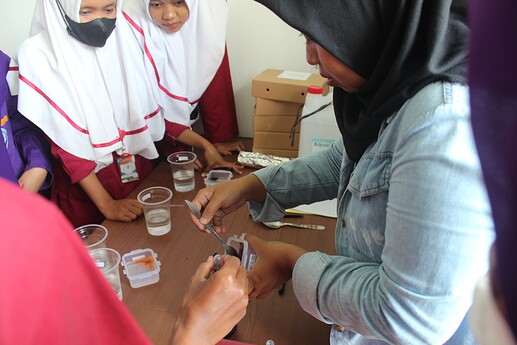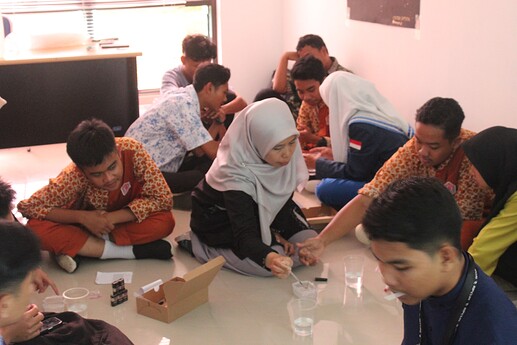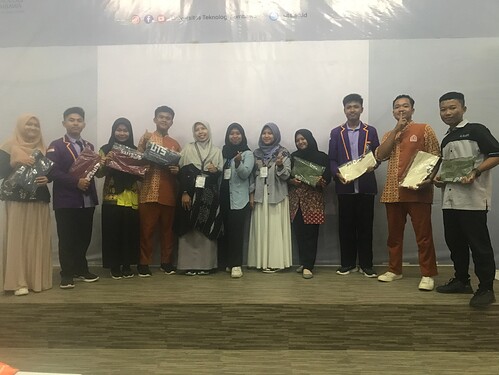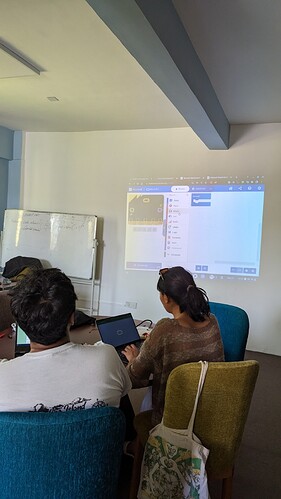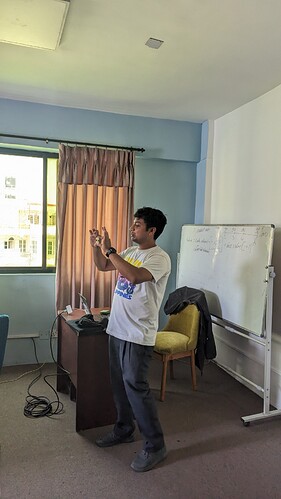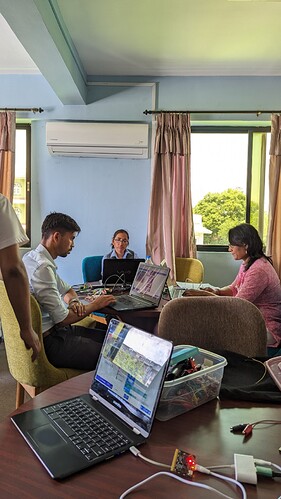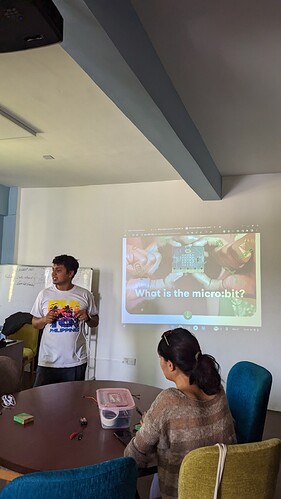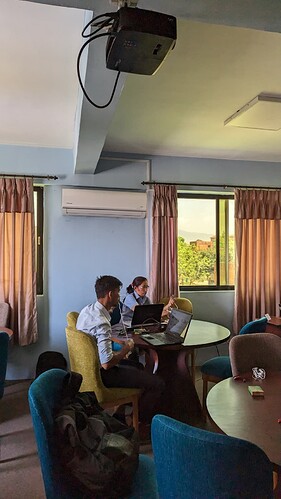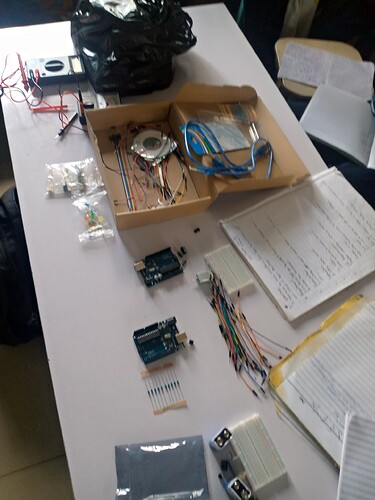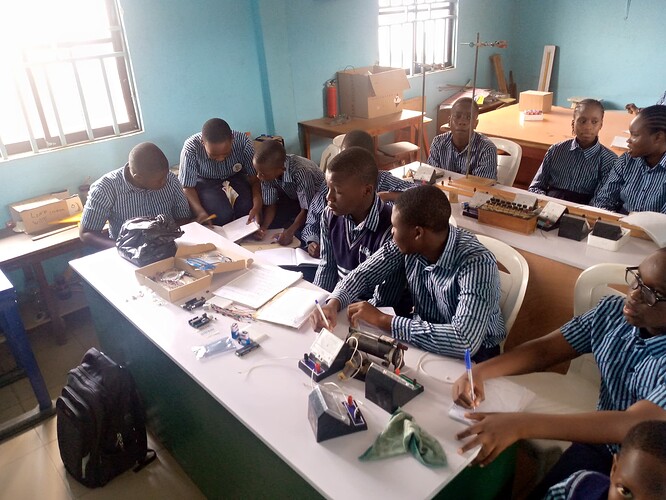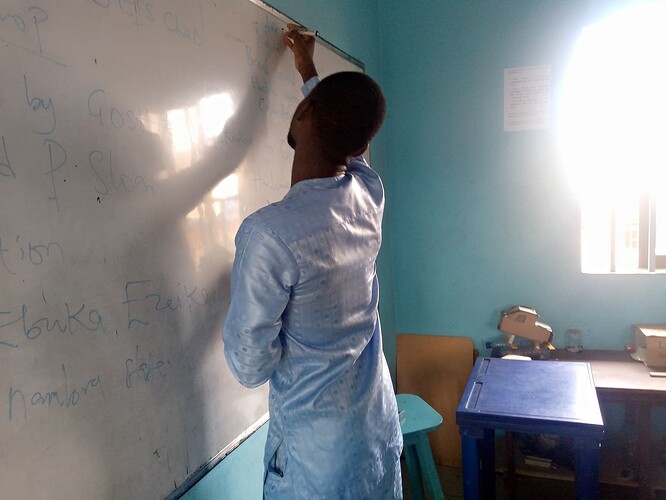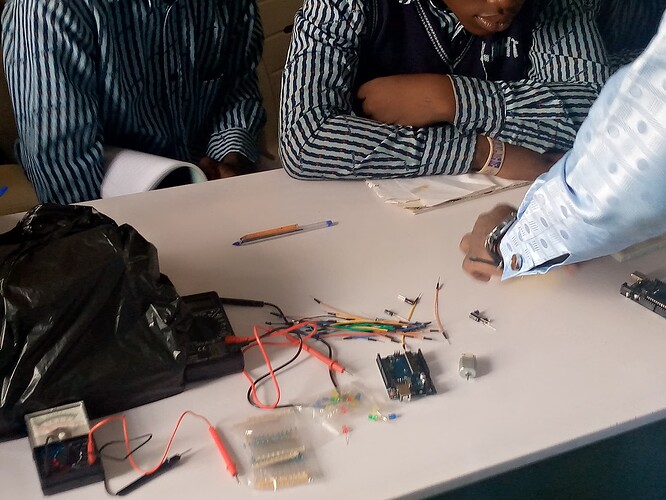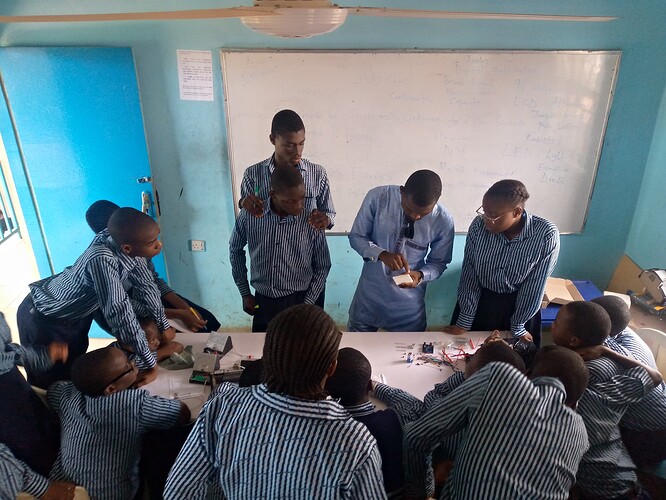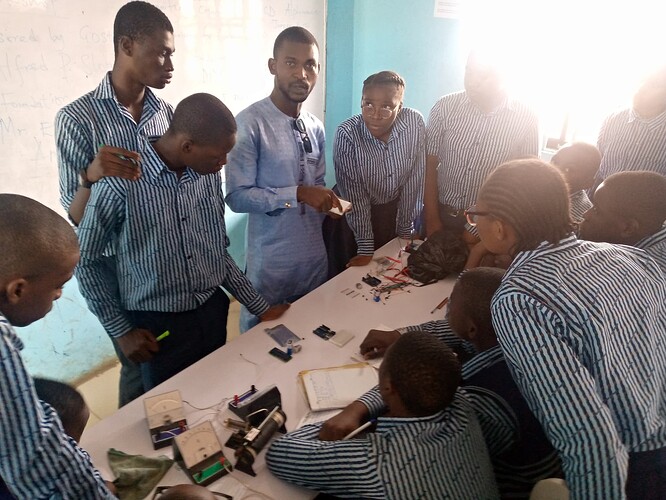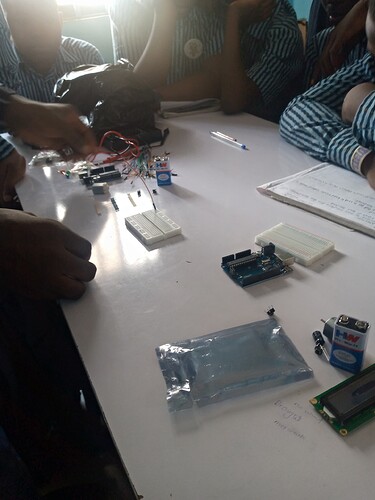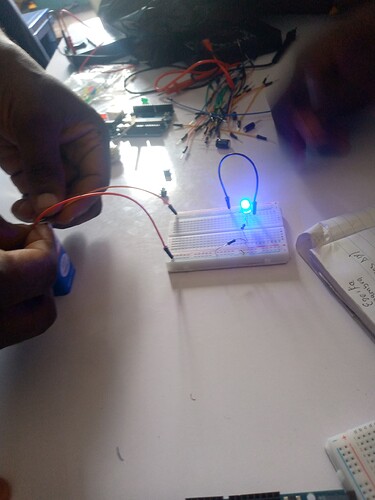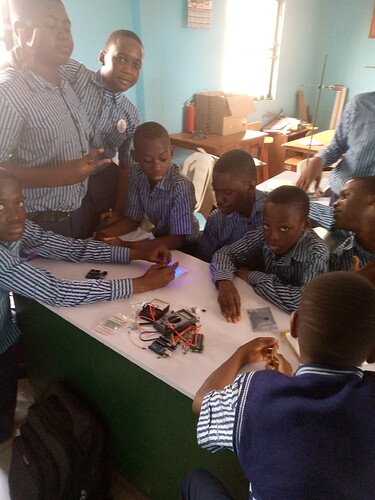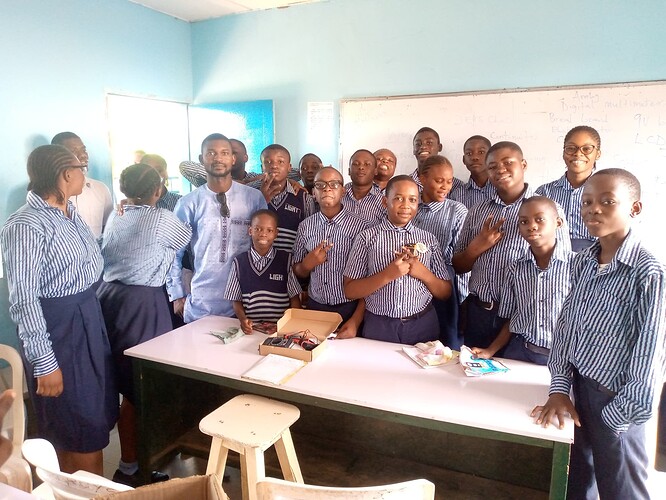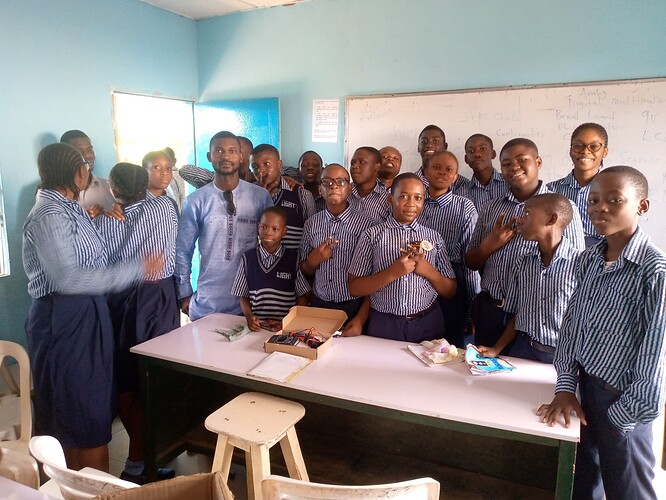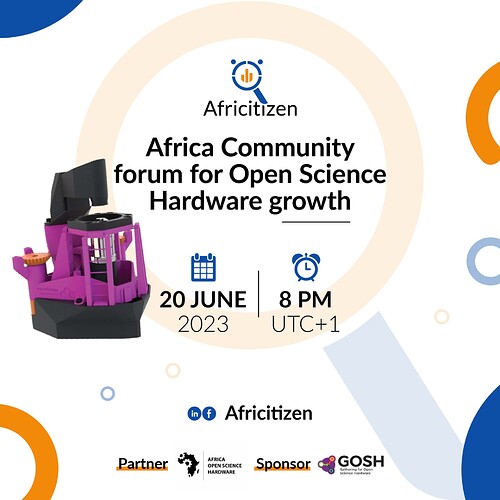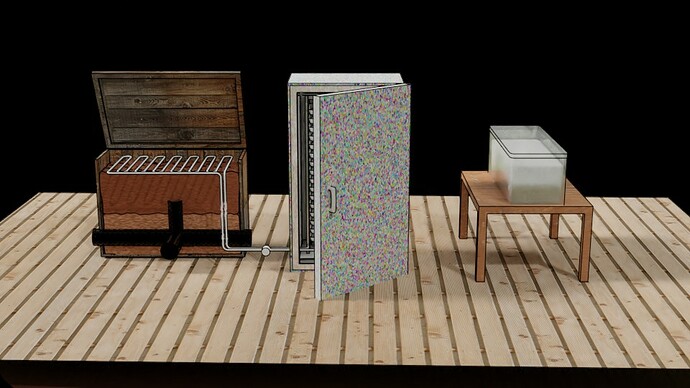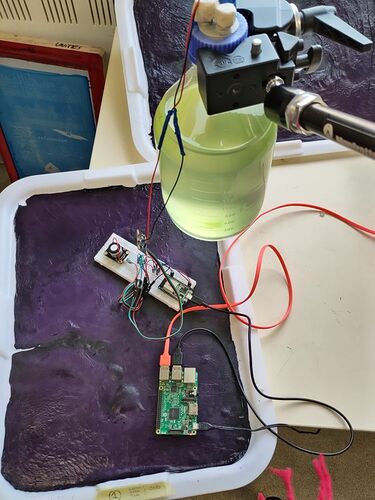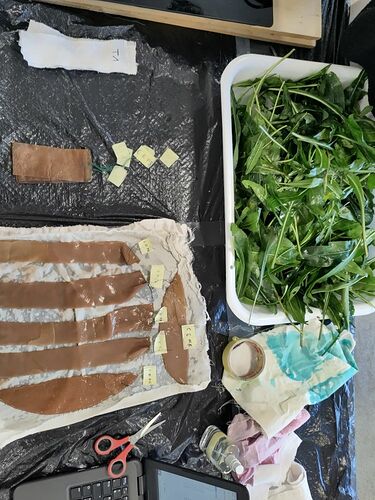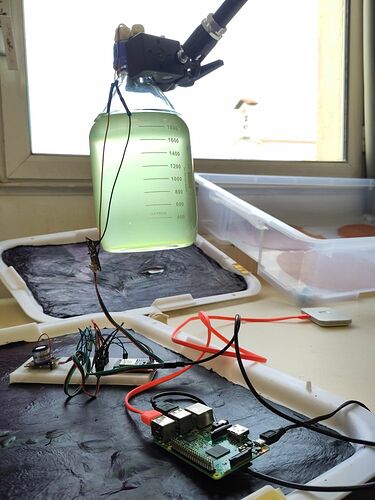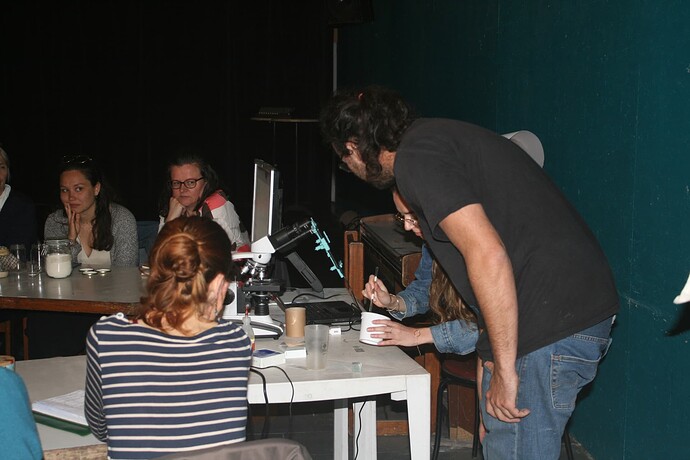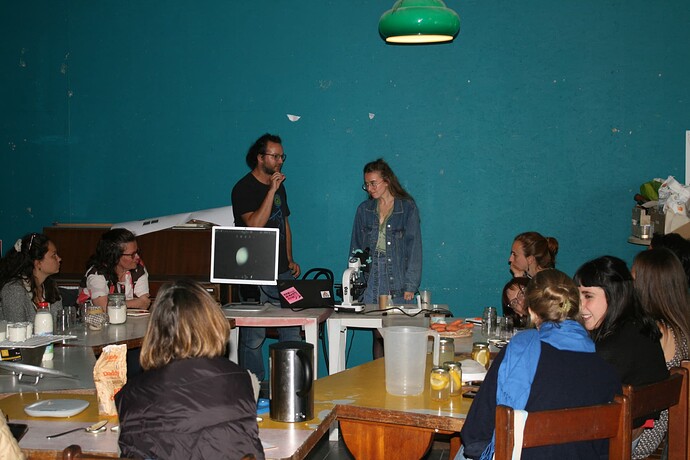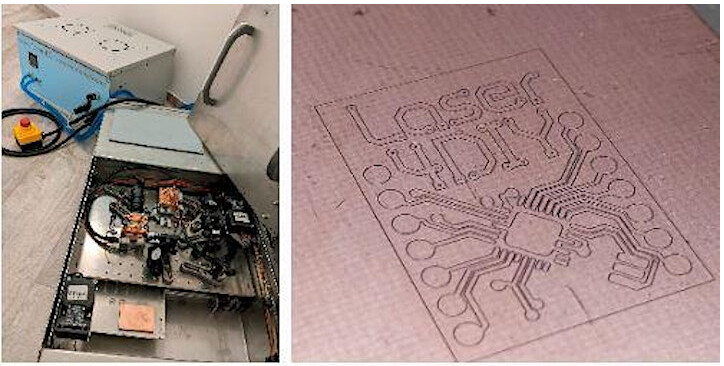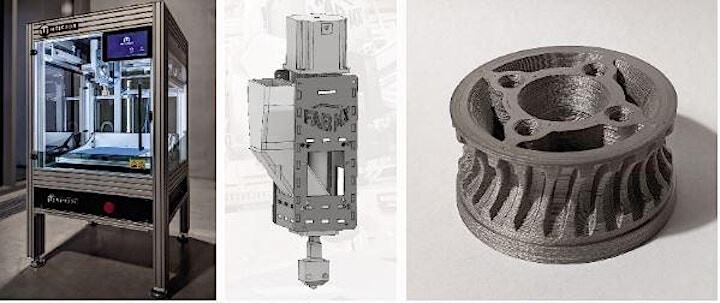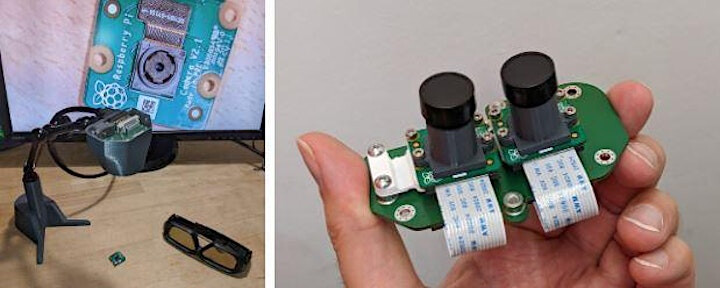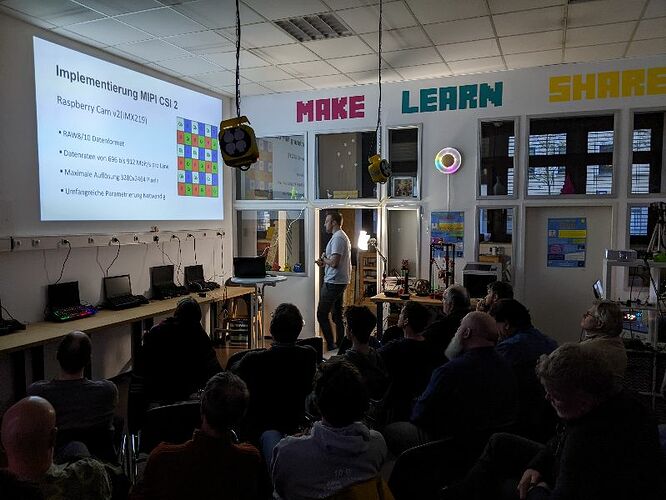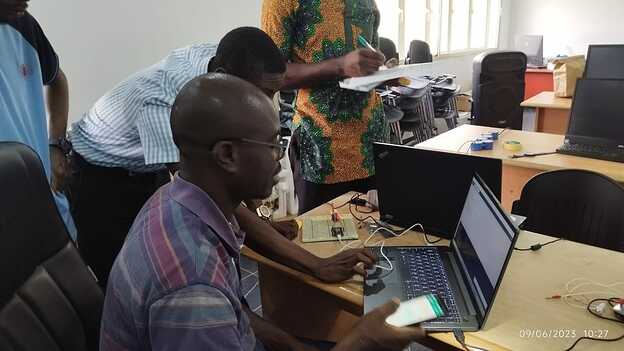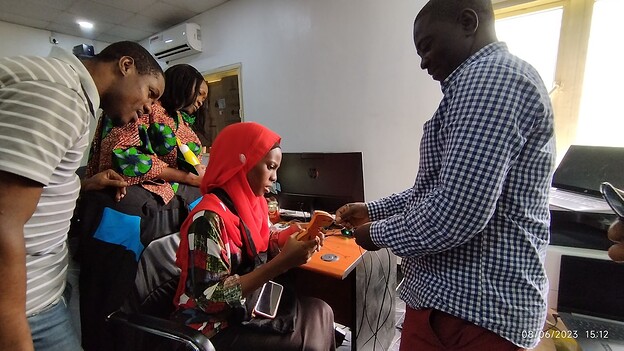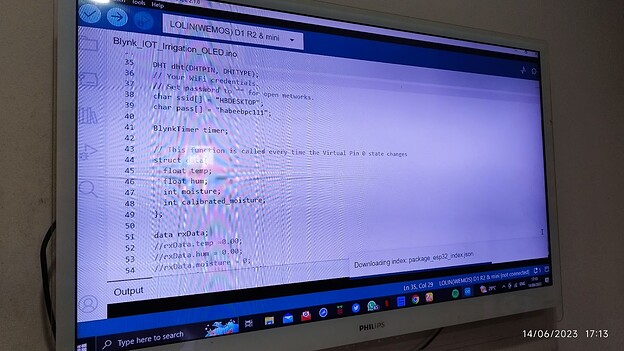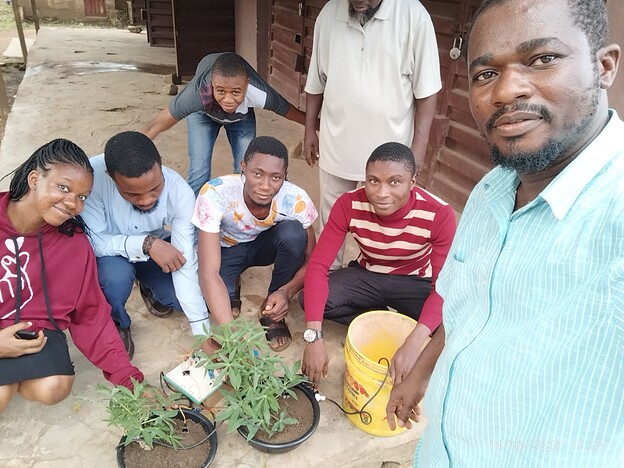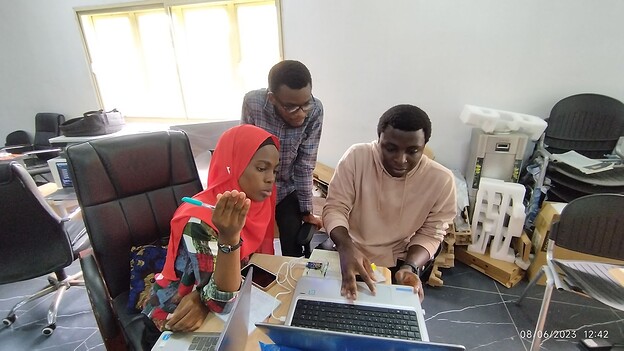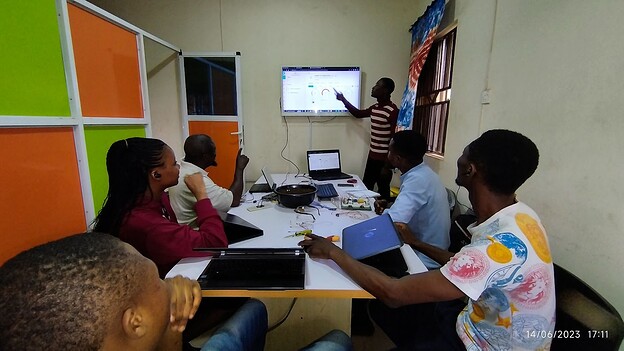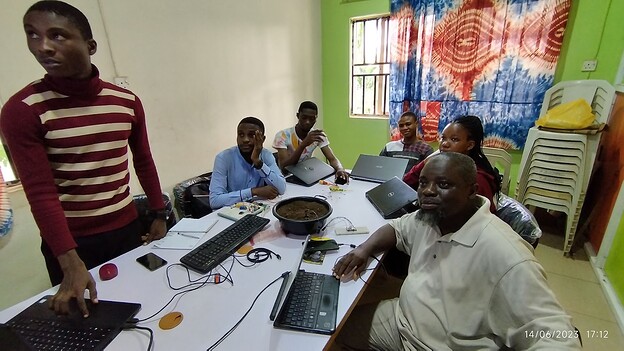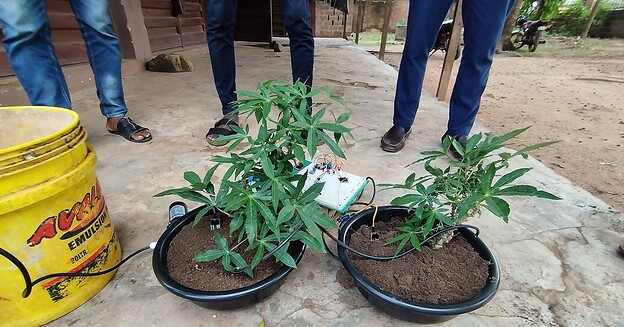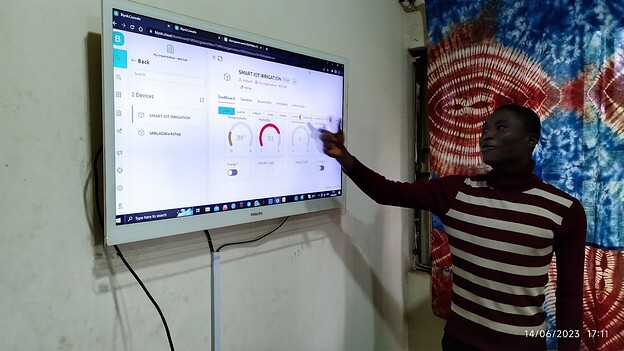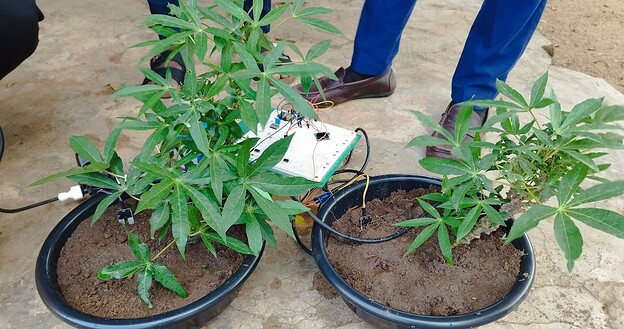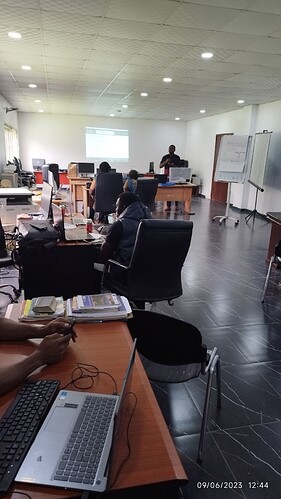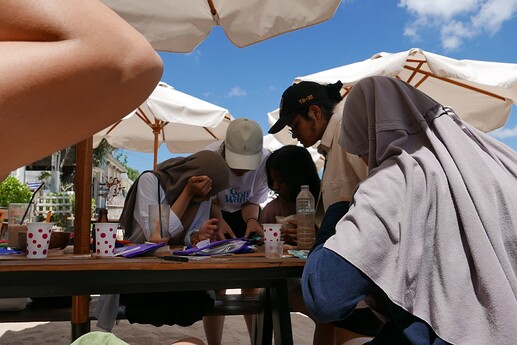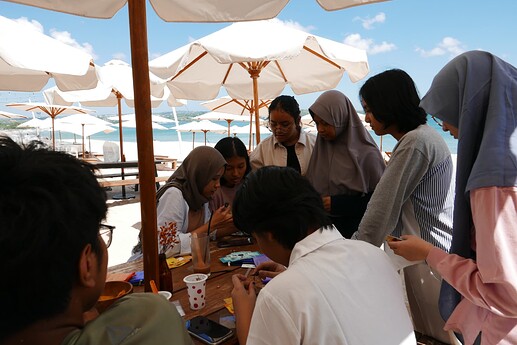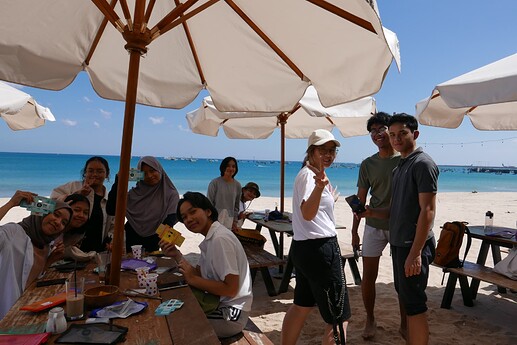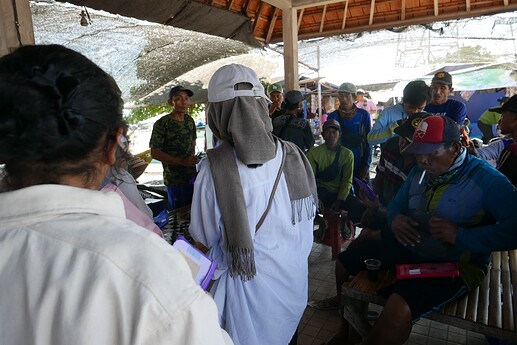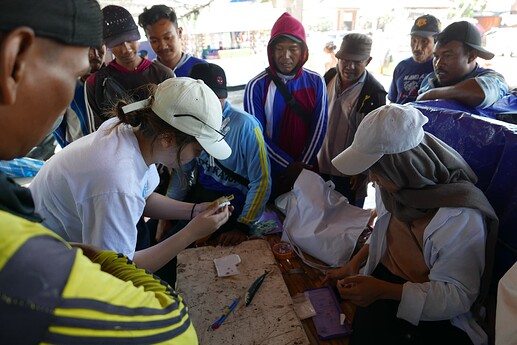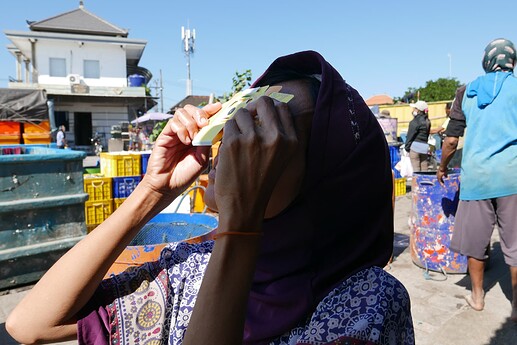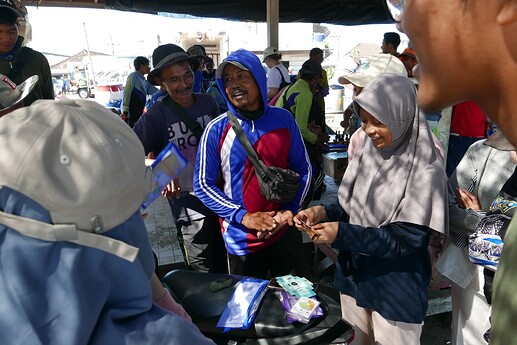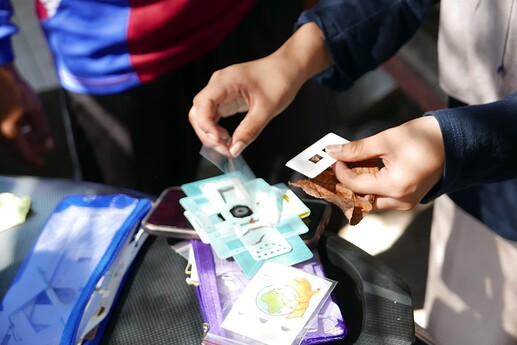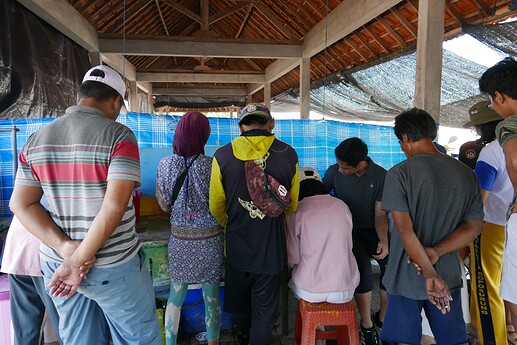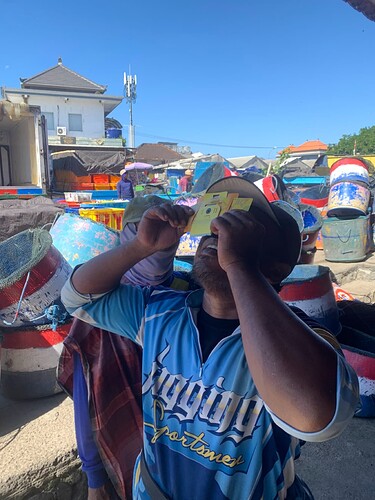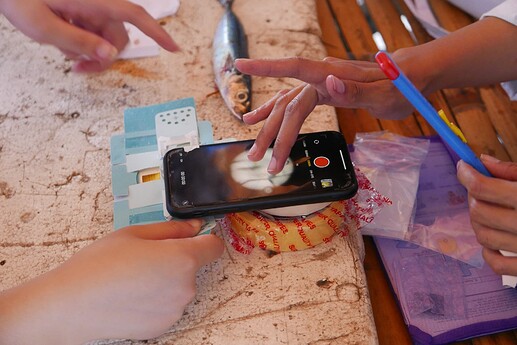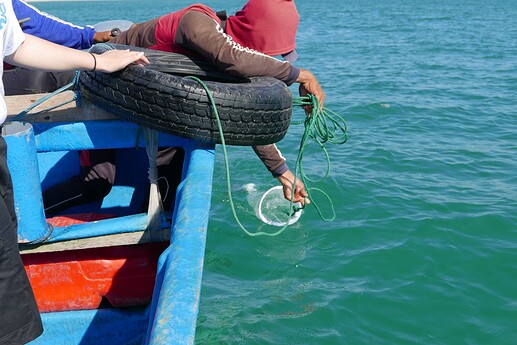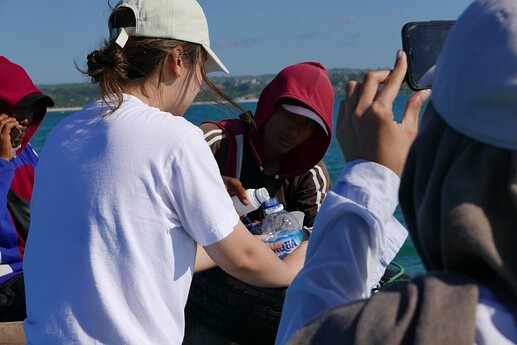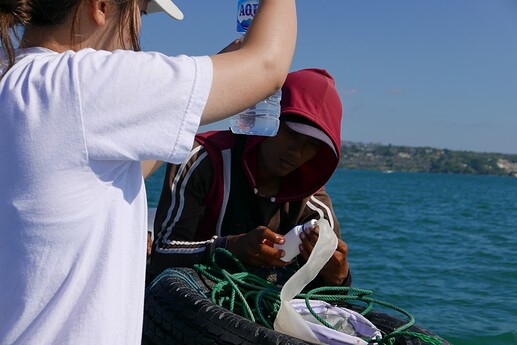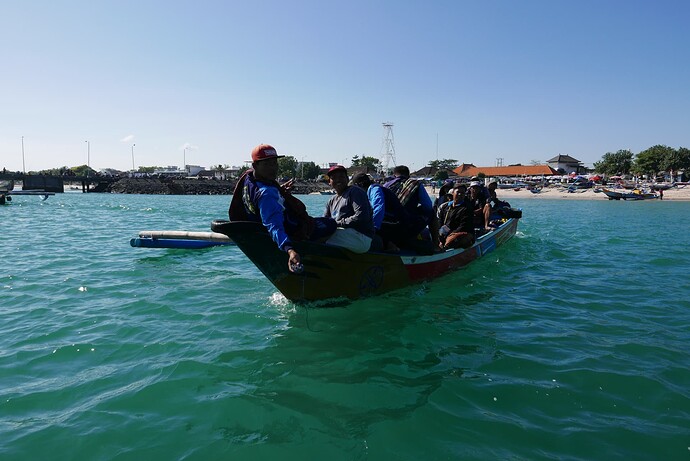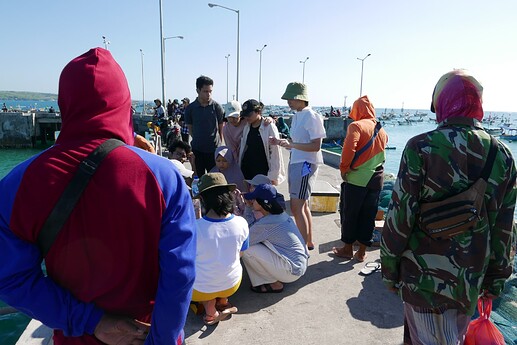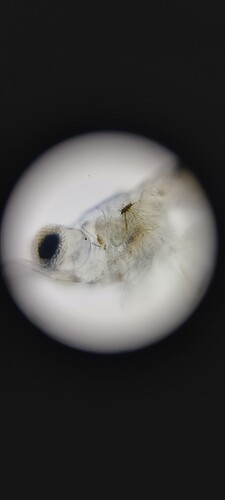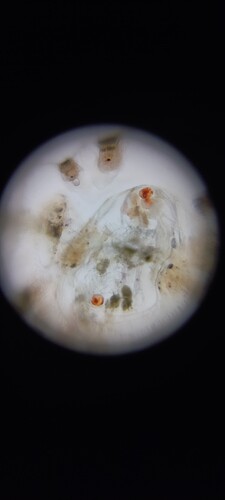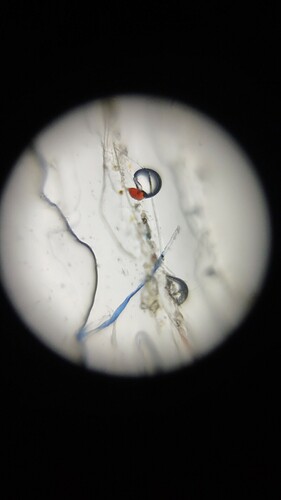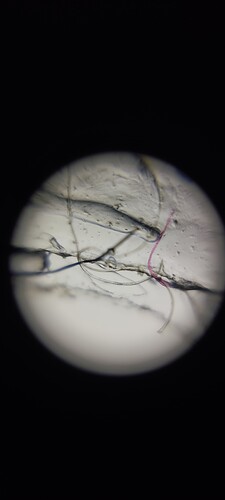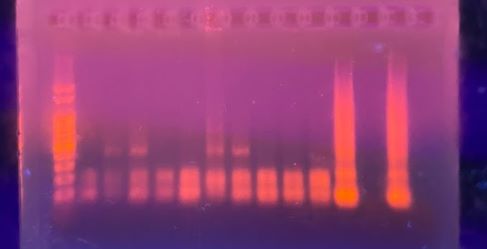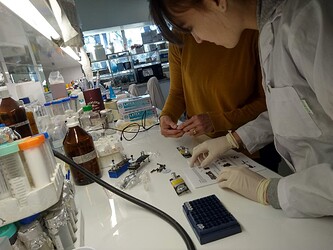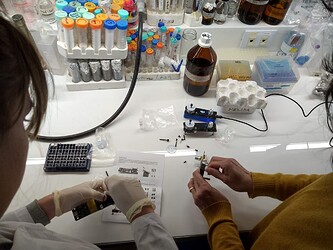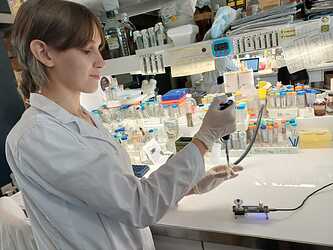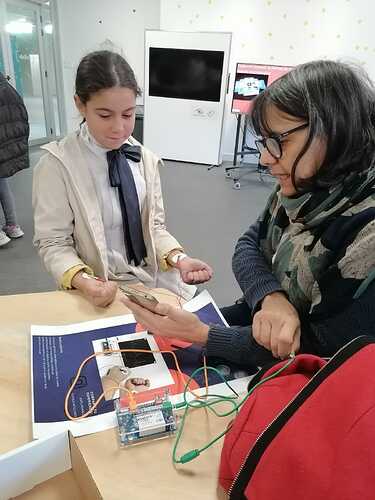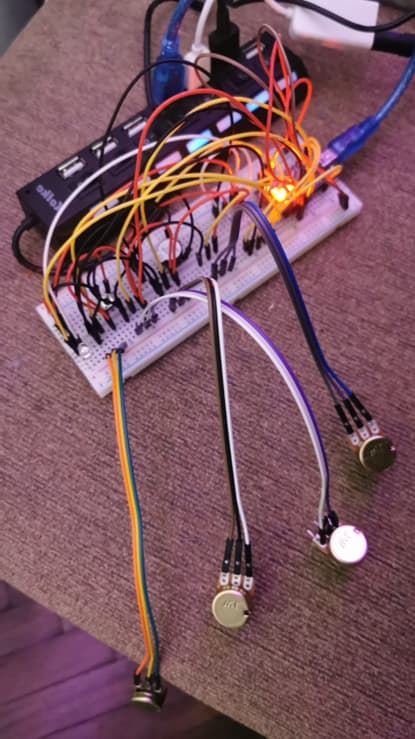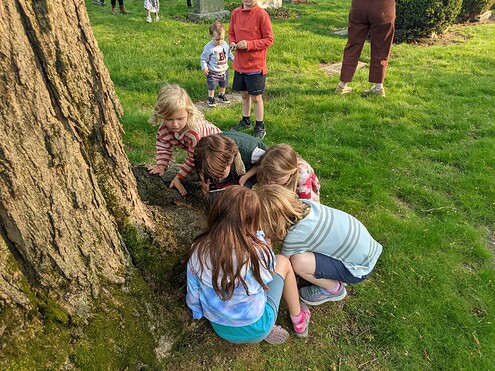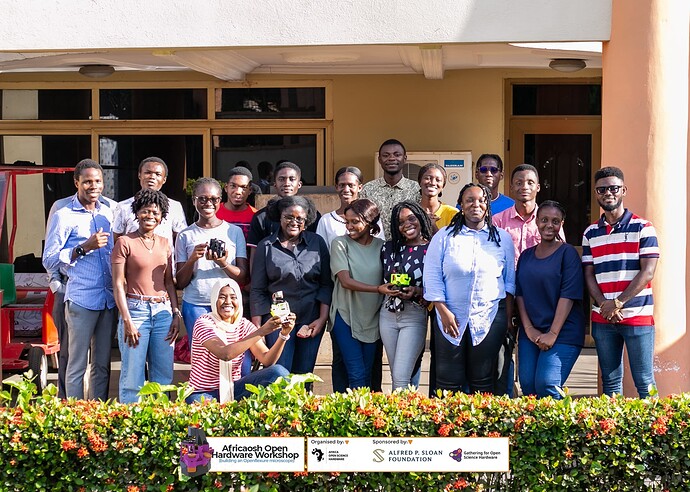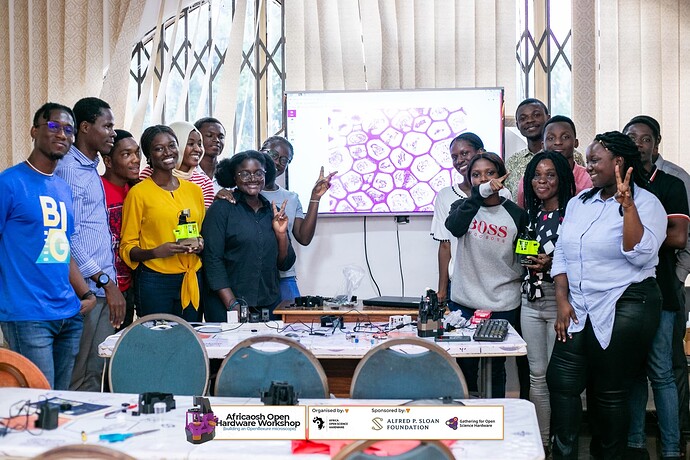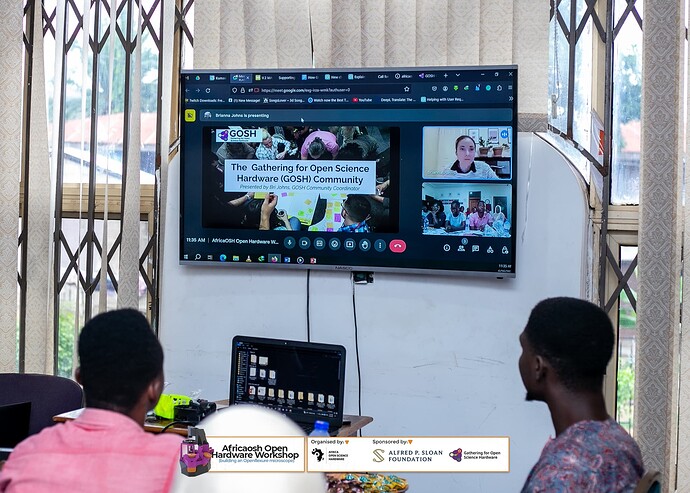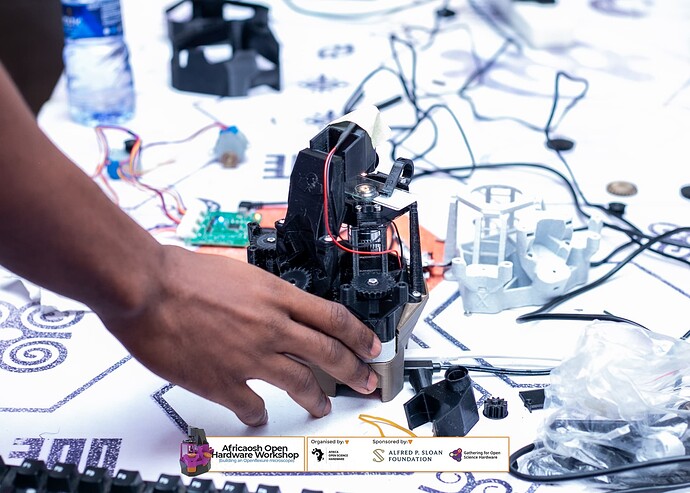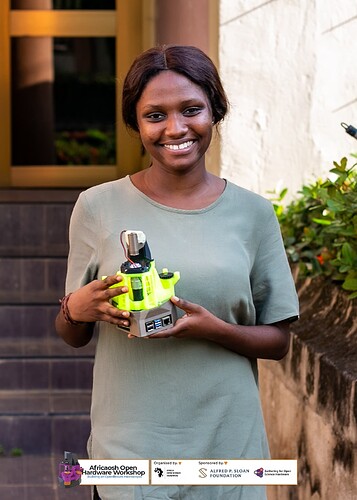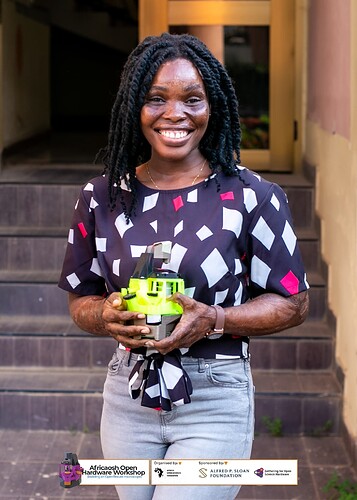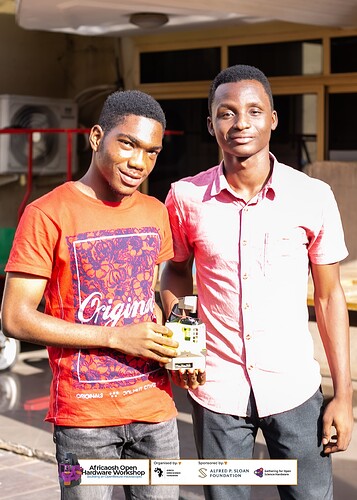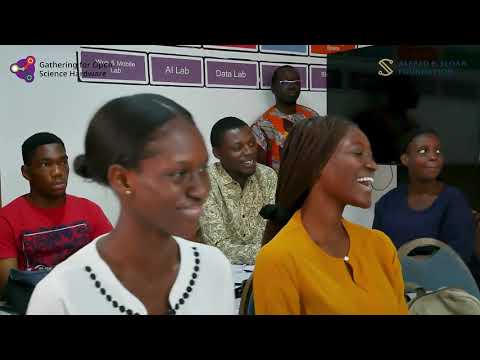Hi! Happy to share that our event took place on May 23rd. It almost turned into a regional GOSH event, as three local OSH projects participated sharing their experiences.
Libre Water, a project for solar water desalination
Libre Space, creating space technology
Wind Empowerement, developing small wind turbines.
After giving some background for OSH, participants assembled Libre Water kits, having the chance to familiriarize themselves through action.
It was an exciting gathering and we are definitely looking forward to more events like that to happen. Thank you GOSH and Alfred P Sloan Foundation for giving us this opportunity!
Last weekend (28.05.) we had our workshop on the Windkit datalogger ![]() The datalogger was assembled and tested. There are still some bugs to be fixed and the code is not ready yet, but a big step has been taken. Thanks goes out to the GOSHCommunity for funding this event
The datalogger was assembled and tested. There are still some bugs to be fixed and the code is not ready yet, but a big step has been taken. Thanks goes out to the GOSHCommunity for funding this event ![]()
All code and hardware designs are open and can be found at https://v.gd/dataloggerfw and https://v.gd/dataloggerhw.
https://twitter.com/Windkit_cc/status/1663972404220051457
Hi everyone, ![]()
Reports from the MakerWare Design Programme.![]()
DAY 1 (May 22nd, 2023)
The students learned what embedded systems design is. The applications of embedded system design were made known to them, and the components we were going to use during the course of the program were also introduced to them.
DAY 2 (May 23rd, 2023)
The students learned about one of the major components to be used in the projects, which is the Arduino. They learned the different types of Arduinos and their uses. The type of Arduino that was used for the training is Arduino Uno. Its usage was also explained to the students.
Day 3 (May 24, 2023)
The Arduino code was taught to the students, but first they were shown how to install the software.Then they learned the basics of the code.
Afterwards, they carried out a mini-project of writing code for multitasking in Arduino using LEDs, making 1 LED constantly blink and alternating the other 2 LEDs consecutively at the same time.
Day 4 (May 26, 2023)
A temperature controller was the first project.The project’s components include:Small fan, 18b20 12c, LCD, Arduino Uno, jumper wiresLithium batteries, relay module,12 volt bulb, resistor breadboardThe code was written and the components were fixed appropriately; it was all good, and the students were really excited.
DAY 5 (27/05/2023)
A bluetooth home automation project was carried out.
The components for this projects includes:
Arduino uno
Jumper wires
Resistors
Bluetooth module
The aim of the project was to use bluetooth and an app to control (regulate) some home appliances, like a bulb and fan.
DAY 6 (May 29th, 2023)
A project on design of a Solar tracker was the last project.
The students learned how to assemble the components for this project together and also learned the code.
It was a fantastic one.
DAY 7 ( May 30th, 2023)
The Solar tracker project was completed and it was successful.
The MakWare design programme was concluded on the 30th May, 2023.
It was an impactful experience and the students were really glad and are looking forward to the next Embedded systems design programme.
Thanks to GOSH Community for funding this training.![]()
Report for Hands-on workshop: Synthetic Biology application on plastic waste degradation
We had our collaborative event on 3-5 May 2023 in Sumbawa Techno Park and Brang Biji River in Sumbawa.
Kit preparation
There were 3 kits developed for this event: microplastic kit, DNA isolation kit, and electrophoresis kit. These kits were prepared and packed in Sumbawa University of Technology.
Day 1 - Plastics and its problem
There were talks given by the lecturers of the Faculty of Life Science of Technology, Sumbawa University of Technology. The first talk was the introduction of plastic in general and how it could bring problems to the environment. The second talk was explaining more about microplastic and some strategies that can be used in tackling the problems.
Day 2 - River clean up and microplastic observation
Students were divided into groups and together went to the Brang Biji River. The microplastic kits were distributed to the students before the observation. The samples of river water were taken using a DIY plankton net and divided into cups for the groups to be observed. The kit has foldscopes that were used by the students to observe the microplastic in the water sample followed with river cleanup. They took some pictures of their observations that are furtherly used as a reference for making posters. The second day was wrapped up with students making posters for the next day’s presentation.
Day 3 - Synthetic biology and its application on plastic waste management
The students presented their posters and what they can learn from the second day activities. There was an introductory lecture about synthetic biology in general that is followed with another lecture about its application on plastic degradation. There was also an explanation about some techniques that are common in synthetic biology research such as DNA isolation and gel electrophoresis that they could learn later after the break. Each group of the students got two kits for the hands-on workshop. Started with gel electrophoresis, they assembled the battery and the gel apparatus and loaded the food colouring as samples. While waiting for the running, they started the DNA isolation from banana and dragon fruit.
Documentation
Hands-on workshop: Synthetic Biology application on plastic waste degradation
3-5 May 2023 in Sumbawa Techno Park and Brang Biji River in Sumbawa
Kit preparation
Day 1 - Plastic and its problem
Day 2 - River clean up and microplastic observation
IMG_20230504_180055_881|281x500, 75%
.Day 3 - Synthetic biology and its application on plastic waste management
Hello,
Here is a quick update.
We ran the first set of our sessions for teachers on May 31st. We had around five teachers participate in the session. Some of them have also signed up for the OSH forum, which should help us set up a community of Nepali teachers exploring the idea of OSH in education in Kathmandu. All the participants were also fascinated with the microbit, and have expressed interest to keep learning about it and use it in their classes.
One of the major challenges we faced was getting the microbits to Nepal. In fact, when we had run the first session, the microbits that we had purchased were still stuck in customs, and they only got to us a couple of days ago. Our delivery partner apparently had a hard time explaining what microbits are to officials. We had to borrow some from our friends for the workshop.
Now that the microbits are here, we are hopeful of running a second session for some more teachers here in the school where I work at. We are also planning to kick start some sessions with middle-school students here.
During our first session, a participant teacher shared with us a narrative that has left me feeling very strongly about the idea of cheap open-source science tools in education. She came from a lower end public school in Kathmandu, and here, most of the kids who go to public schools come from families that have very difficult conditions, often they might even struggle with meals. So while the teacher valued the workshop and thought it could be very helpful to her kids, there is no way that the students or the school could afford to bring tools like microbits to their classroom. In fact, they had been struggling to raise 20 cents per children to upgrade their science lab. This made me want to look for ways to make these tools accessible to the kids too. For now, a solution that we have come up with is that perhaps we could figure a way to share these microbits that we have, kind of like borrowing from a library.
Here are some photos from the first session. Will keep you updated on the other sessions as we run them.
Hi everyone,
Here is the report of our workshop: Introduction to Arduino kits in a scientific context
Date: 9th June 2023
Venue: Light of Day High School, Abuja, Nigeria
- Introduction:
The “Introduction to Arduino Kits in a Scientific Context” workshop was successfully conducted on the 9th of June, 2023 at Light of Day High School in Abuja, Nigeria. The workshop aimed to provide students with comprehensive knowledge about Arduino components and their applications in a scientific context. This report summarizes the event and highlights the key aspects covered during the workshop.
- Workshop Details:
The workshop garnered significant interest, attracting an attendance of over 15 enthusiastic students. These students actively participated in various learning activities, gaining valuable insights into the world of Arduino kits and their practical usage. The workshop focused on the following key topics:
2.1 Understanding Arduino Components:
Participants were introduced to the fundamental components included in an Arduino starter kit. They learned about the names and functions of each component, enabling them to comprehend their role in constructing circuits and executing scientific experiments.
2.2 Circuit Building on Breadboards:
Students were guided through the process of building circuits using Arduino components on breadboards. This hands-on experience provided them with practical skills in assembling circuits efficiently and effectively.
2.3 Continuity Testing with a Digital Multimeter:
Another essential skill covered during the workshop was the use of a digital multimeter to test for continuity. Participants were educated on the significance of continuity testing and were able to apply this knowledge during practical exercises.
- Component List:
The following components were utilized during the workshop:
-
Arduino UNO board
-
Breadboard
-
LED (Bright White, Green, Red, Yellow, Blue, and RGB)
-
LCD Alphanumeric
-
Solid core jump wires
-
Stranded jump wires (RED and BLACK)
-
9V Battery
-
Resistors (220 Ohms, 560 Ohms, 1kOhms, 4.7kOhms, 10kOhms, 1MOhms, and 10MOhms)
-
Small DC Motor (6/9V)
-
(40 x 1) Male Strip pins
-
Red, Blue, and Green Transparent Gels
-
Diodes
-
Capacitors (100uF)
-
Optocouplers
-
Small servo meter
-
Piezo Capsule
-
Push Buttons
-
Tilt Sensor
-
Potentiometer
-
Phototransistor
-
Temperature Sensor
-
MOSFET Transistors
-
H-bridge Motor Driver
-
USB Cable
-
Digital multimeter
- Acknowledgements:
We extend our sincere gratitude to the following organizations and foundations for their invaluable support in making this workshop a reality and a resounding success:
-
Gathering for Open Science Hardware (GOSH)
-
Open Science Hardware Foundation (OSHF)
-
Alfred P. Sloan Foundation
Without the generous support of these organizations, it would not have been possible to deliver such an enriching learning experience to the students.
- Conclusion:
The “Introduction to Arduino Kits in a Scientific Context” workshop achieved its objectives of familiarizing students with Arduino components and their applications in a scientific setting. The attendees displayed enthusiasm and actively applied the knowledge they gained during the workshop. The event served as an important stepping stone in nurturing the students’ interest in electronics and scientific experimentation.
We express our gratitude once again to all the stakeholders involved and look forward to conducting more such educational initiatives in the future.
We will organize the workshop on the Africa Community Forum for Open Science Hardware growth on June 20, 2023 (8 pm UTC+1). This workshop will last 2 hours, with two main parts: the first for deconstructing the problem, and the second for generating ideas that can help elaborate a theory of change for developing open science hardware.
![Africa Community forum for open Science Hardware |500x500]
Hi @TOKO the image you attached says “20 May 2023”. Is it May or June???
BTW, really excited to see all the projects happening! ![]()
Hi @hpy it’s June.
Hi GOSH !
We had a wonderfull workshop with 15 attendees. After a first part on understanding the interactions between microorganisms in the production of bacterial cellulose, we modeled the mobile and low-tech fermentation chamber in 3D on blender to collectively understand how we can facilitate the documentation during the process of making grow the bacterial cellulosis.
We look foreward to continue the adventure at Nîmes University in october ! Thanks a lot Gosh for the support. We will continue to update the project on the plateform.
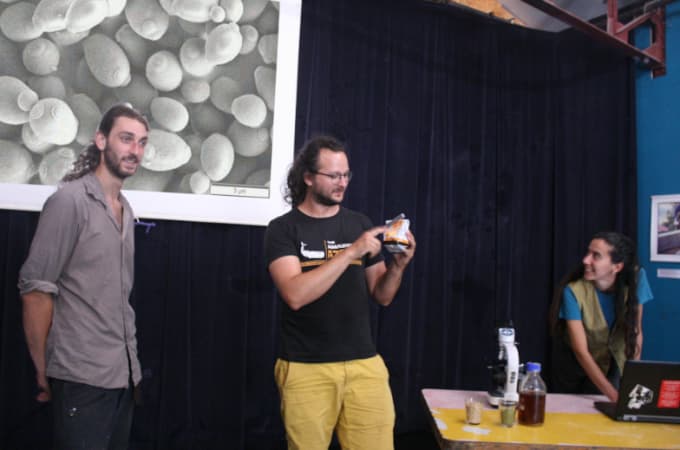
At the FabLab München we had a wonderful Open Hardware Meetup. It took place on May 17, the original event announcement can be found here.
We had 35 people listening to 4 talks about 3 open hardware projects started at our fablab, live demonstrations of all these projects and very interesting discussions.
The projects were:
Laser4DIY is an open-hardware device for prototyping PCBs through the direct ablation of copper using a laser. It consists of several parts: a microchip-based DPSS laser source, driver electronics for the pump laser diode, a cooling system including a 4-channel TEC controller, a motorized XY table, and a safety housing.
For more information visit: laser4diy.org
FabMX is an open-hardware project for the development of a cost-effective 3D printing system for metal objects. At its core is a granulate extruder for the additive processing of metal injection molding material. These 3D-printed parts are then sintered in an oven and transformed into genuine metal parts, e.g., stainless steel.
For more information visit: fabmx.org
StereoNinja is a digital stereo microscope. This open-hardware device combines the benefits of (optical) stereo microscopes and affordable USB microscopes. A typical application is the inspection and soldering of electronic boards.
For more information visit: stereo.ninja
The talks were in German:
- Laser4DIY: Platinen selbst mit einem Laser herstellen (Tobias Gutmann)
- StereoNinja: Ein digitales Stereo-Mikroskop (Alex Lennartz)
- StereoNinjaFPGA: Eine FPGA-Implementierung von StereoNinja (Michael Feldmeier)
- FabMX: Ein Open-Hardware 3D-Drucker für Metall (Andreas Kahler)
The talks were recorded, we will publish the videos soon on this page:
https://wiki.fablab-muenchen.de/display/WIKI/Open+Hardware+Meetup
Thanks GOSH and the Alfred P. Sloan Foundation for supporting this event!
Title: Report - Building an ESP8266-based Smart Irrigation System
This report presents the outcomes of the project “Building an ESP8266-based Smart Irrigation System,” which aimed to equip participants with the knowledge and skills to create their own smart irrigation systems using the ESP8266 microcontroller and IoT technology. The project provided a comprehensive workshop that covered essential topics, including an introduction to IoT and its applications in agriculture, an overview of the ESP8266 microcontroller, and pushing Data to Blynk Cloud server.
During the workshop, participants engaged in hands-on activities, assembling the required hardware components and programming the ESP8266 microcontroller. They learned how to control the irrigation system, read sensor data (such as soil moisture, temperature, and humidity), and transmit data over the Lora network. Participants also explored system integration techniques and data visualization methods, enabling them to analyze and interpret the collected data for improved decision-making in smart irrigation.
The workshop included practical implementation sessions, allowing participants to deploy their final projects and conduct field testing. Through this experiential learning, participants gained real-life experience and valuable insights into optimizing water usage and enhancing agricultural practices.
The project successfully achieved its objectives of empowering participants, including farmers, graduates, and students, to develop their own ESP8266-based Smart Irrigation systems. By fostering innovation and sustainability in the field of smart agriculture, the project contributes to water conservation efforts and promotes efficient agricultural practices.
Overall, the project demonstrated the potential of IoT technology in revolutionizing the agricultural sector and highlighted the significance of smart irrigation systems. The knowledge and skills gained by the participants equip them to be at the forefront of utilizing technology to enhance agricultural productivity while ensuring responsible water management.
Hi GOSH,
Here is an update from the Foldscope Indonesian Fellow / Fab Lab Bali. Our event name is Jimbaran Fishing Communities Looking Closer with Foldscope. Due to complications with the logistic of the funds (the grant finally came in 9th June!), adjustments are made to the original plan of the workshop.
The workshop is divided into 2 sessions:
-
Session 1: Foldscope Workshop (conducted on 28th May)
We decided to go for a more intimate workshop with the fishermen (15-20). Since we were running low in manpower, we contacted a local Bali high school and we ran a Foldscope workshop with the students prior to the session with the fishermen. We taught (10) student volunteers how to assemble and use the Foldscope. This also includes the basics of collecting wet and dry samples and how to prepare those for the Foldscope.
The kids were really quick in understanding how to work around the Foldscope! After the training session with our “helping hands”, we head to the Kedonganan Beach to run the main Foldscope session, with the local fishing community. Pak Narto and Pak Putra, the fisherman that we introduced the Foldscope to last year during the Bali Fab Festival event helped us gather the fishing community for the workshop.
Our student volunteers helping out the fishermen how to assemble and use the Foldscope
While running a demonstration, the fishing community was curious about the health of the fishes at the waters they usually fish from. We took a live catch and dissected it and found strands of microplastics on the fin and the belly
Next we did a towing demonstration with the plankton net to show they can collect the water samples and how these samples are important to understand the ocean’s health
Checking the freshly caught samples!
Lot’s of microplastics
Here is a video of the microplastics found in the sample -
Session 2: Making Frugal Plankton Nets (to be conducted)
As our grant came delayed and the fishing community happened to have a local religious celebration to be done for the month - we have yet to find the time to conduct the plankton net making session but we are planning to conduct it within the month of June.
We are currently working on a small video recap of the 1st workshop session. We plan to finish Citizen Science Guidebook for Fishing Communities after the 2nd Workshop. We are also trying to establish the ecosystem for the fishermen with local universities to keep the citizen science movement going! So definitely alot of ongoing activities planned as part of the Fab Lab Bali’s Frugal Science Initiative
Introducing OScH cyclers to UNSAM
Main outputs:
- Translated PocketPCR guide to Spanish, and added a bit of content: Guia PocketPCR en Español.docx - Google Docs
- The idea was very welcome by University profressors at IIBio-UNSAM.
- Dr. Marcela Brocco and her team have led the first round of assemblies, and tested the cyclers against their standard equipment with equivalent results. Find pictures below!
- There will be a workshop involving a total of four professors by the end of June, where your’s truly will also attempt to convey the awesomeness of OScH and GOSH.
- They have already committed to use the cyclers in their university courses. This means that over a hundred undergraduate students, will become aware of and use open source science hardware for the first time, each year.
Description of the results (Spanish ahead): En el gel. Las dos últimas calles son positivo y negativo con la cicladora OScH y las dos anteriores, lo mismo pero con una cicladora convencional. Hay chorreado porque pusieron mucho templado, pero da igual en las dos corridas.
Reading the manual.
Finalizing assembly.
Adding a bit of mineral Oil (whatever that is made of) on top of the PCR mix.
Next steps
Depending on further feedback and requirements from the professors, we might:
- Manufacture units locally.
- Solder and program the heated lid to replace the mineral oil (the circuits are there but they are not connected for some reason).
- Hopefully inspire the university to invest in more OScH for teaching and doing science.

Thanks!
Thanks GOSH for your support, and congrats to everyone for your achievements!
Best,
Nico
I’m so happy to share that we recently organized two captivating workshops for children in our open-source community, and their enthusiasm was contagious!
Both workshops were held at the CEILAB Maker Space of Espacio Ciencia at LATU (Montevideo, Uruguay).
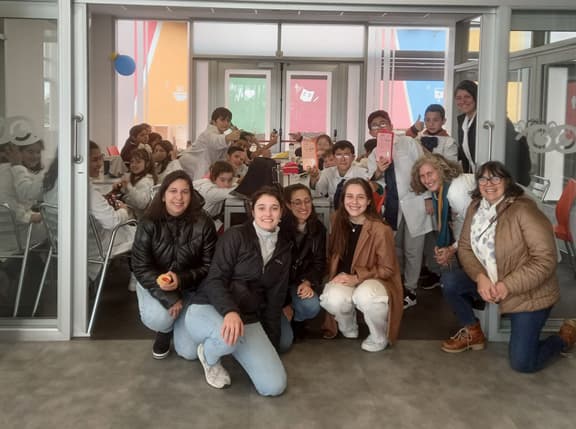
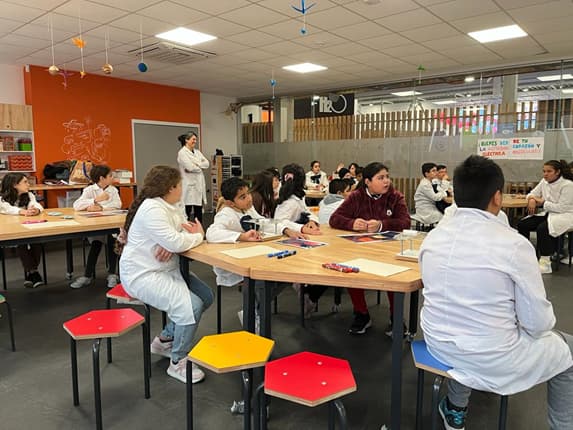
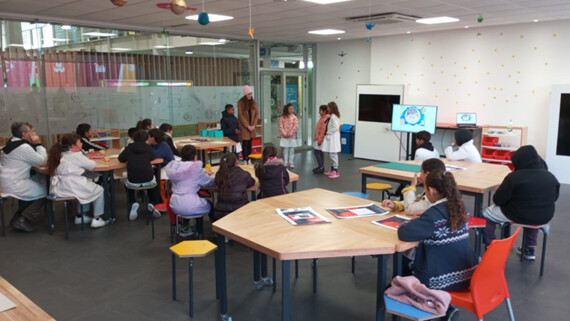
These workshops served as the initial phase of an ongoing project dedicated to making a positive impact on two public schools in low-income zones of Montevideo.
The children dove into the world of hands-on experimentation with low-cost devices to see brain sections and neurons for the first time in their lives with Foldscopes.
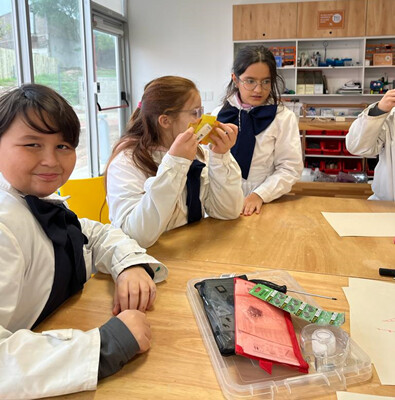
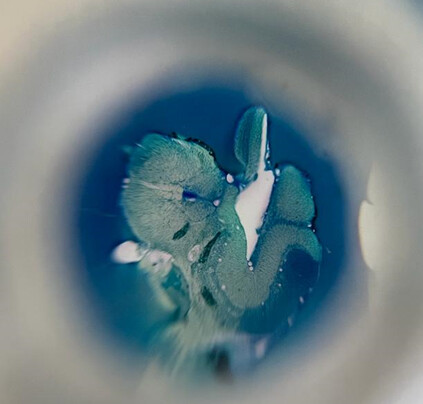
and record the bioelectrical activity generated by their skeletal muscles,
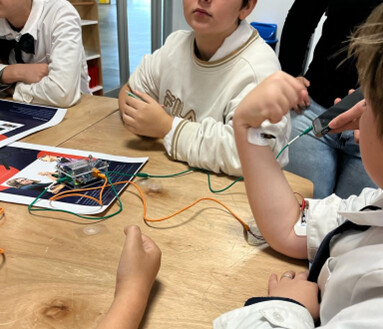
heart
and brains
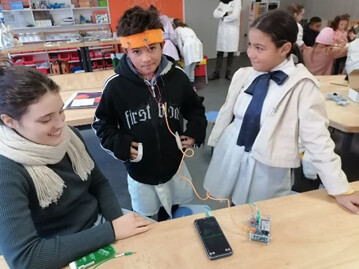
as well as the electric organ discharge of an autochthonous weakly electric fish
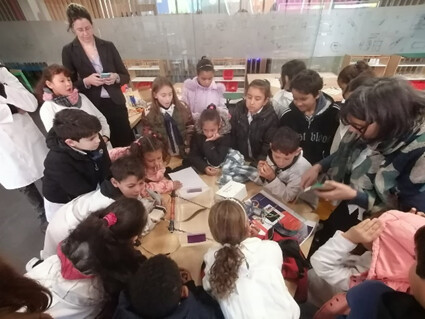
with Backyard Brains equipment, embracing the opportunity to explore and expand their understanding and interest in neuroscience and microscopy.
Witnessing their excitement and curiosity was truly inspiring.
We are delighted to announce that the schoolteachers expressed their eagerness to continue collaborating with us, ensuring the integration of more interactive sessions at the schools where students will conduct experiments during their regular classes.
We will also collaborate on the assembly of a school laboratory!
We are already working on the assembly of an in-silico neuron.
and soon will receive the UC2 Discovery | Core for the next activities at the schools!
We feel that these activities are igniting a passion for learning and empowering young minds with practical scientific knowledge.
We´ll keep you updated as we embark on this educational journey! ![]()
![]()
![]()
We thank GOSH for the invaluable support in bringing these workshops to life!
Hello friends,
So during this grant, we ran nine Owl Prowls – free nature classes for children – in our city. The Owl Prowls were a hit! We regularly had 50-60 people showing up for each walk. Each week, we ran a different nature activity exploring a different aspect of the natural world. I made a full write-up, documenting the project on our blog here with lots of thoughts, instructions for how to run the activities yourself, and a breakdown of what worked and what didn’t.
This was a great project, and I like to think of it as a prototype for a larger roll-out of Owl Prowls in the future. Already, this summer, we have a librarian, paid for by the city, who is going around on the mobile library running activities we designed during this Owl Prowl with children across the city. In the Fall, we’re planning to run several parallel Owl Prowls across many other libraries in the city. I’m very grateful to GOSH for supporting us through these prototype events, and helping us work out a pattern that we can build to scale in the future.
–a
Hi everyone,
AfricaOSH successfully organized its in-person open science hardware workshop in Ghana on June 16, 2023. The workshop took place at the Kumasi Hive Event space and primarily catered to students from the Kwame Nkrumah University of Science and Technology, with one participant being a high school teacher from the Ghana Education Service (GES). A total of 13 individuals attended the workshop, consisting of 6 females and 9 males.
The workshop began with a concise introduction to open science hardware, highlighting its benefits such as accessibility, customization, and transparency. Examples of open science hardware, such as open-source microscopes, DIY thermometers, and 3D-printed lab equipment like pipette holders, were presented to the participants. They were encouraged to embrace open scientific practices, collaborate with fellow researchers, and utilize open scientific tools in their own projects. The session concluded with a discussion on the challenges facing open science hardware in Africa and the global efforts being made to address them. Furthermore, the participants were introduced to the Africa Open Science and Hardware Community, which shed light on the activities of AfricaOSH and its commitment to promoting open science hardware practices throughout Africa.
During the workshop, a special session was held featuring the Community Coordinator for the Global Open Science Hardware (GOSH) community. The coordinator delivered a presentation on GOSH, its purpose, and how its activities are promoting open science hardware on a global scale. Find Bri’s slides on GOSH here: GOSH - OScH in Africa presentation (final) - Google Slides
The main highlight of the event was a training workshop on the OpenFlexure Microscope. Thanks to a grant from GOSH and the Albert P Sloan Foundation, all participants were provided with the necessary materials and tools to build their own OpenFlexure Microscope. The workshop leads guided the participants in identifying and understanding each component of the microscope, as well as how to assemble them. The attendees were divided into three working groups, each responsible for building one microscope. At the conclusion of the workshop, all groups had the opportunity to view microscopic slides using their newly constructed microscopes.
Overall, the AfricaOSH in-person open science hardware workshop in Ghana proved to be a valuable experience for the participants, providing them with knowledge and hands-on training in open science hardware while fostering collaboration and awareness within the local scientific community.
You can also access the photo gallery here: AOSH Training Pictures - Google Drive
Hi Nico, this workshop is part of the grant, no? If so, did the workshop happen at the end of June? What date? How many attended? Was it a success? Thanks! - Megan Z.
